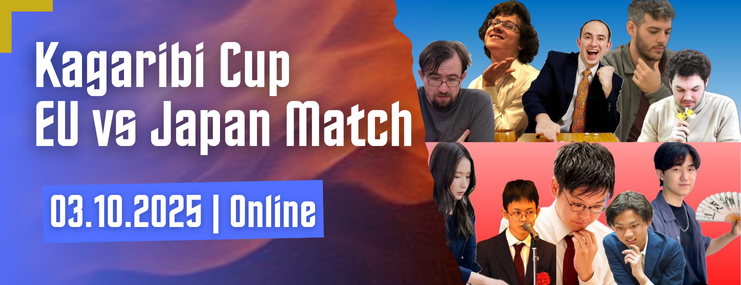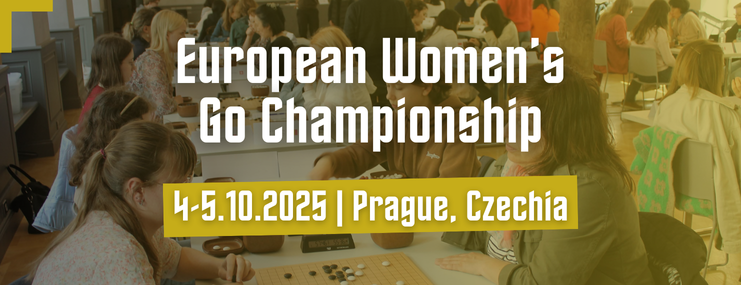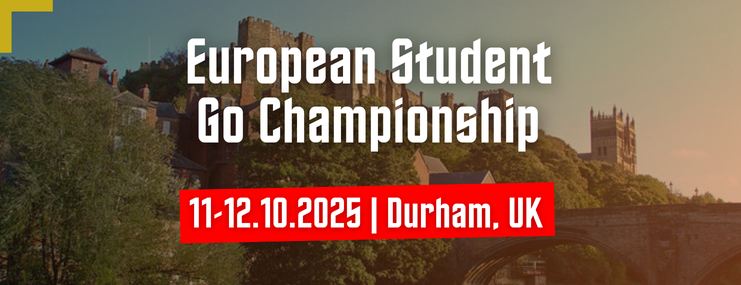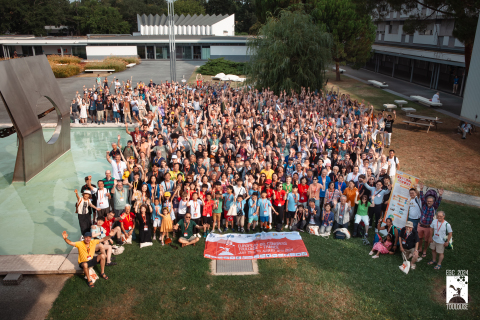The EGC 2024
The 66th European Go Congress was held in France this year, in the beautiful but, gosh, very hot city of Toulouse, in the south. The event, located on the campus of the French National School of Civil Aviation (ENAC), gathered around 1000 players and hundreds of visitors for two weeks of go events.
Everything started in the middle of the week, with the volunteers and players of the SEYGO and Pandanet Team Championship Finals arriving a bit earlier than the other participants to warm up with their respective tournaments, and to help the team warm up the welcoming procedures for the crowds arriving at the weekend.
Therefore, at the official opening of the Congress, we already had winners to reward. This was a good source of inspiration and motivation for the players trying first to survive the opening ceremony in a very hot environment despite the air conditioning (you have no idea how hot it was on stage, our mutual complaints could easily make a heartbreaking pop song!).

The two big events that brought both kids and grown-ups into the spotlights of the stage are described in this article, so we’ll do a little jump forward to the core of the EGC itself with the multiple other tournaments and impressions in a moment.
Many many many many games
In total, close to 8000 games were probably played in the various EGC tournaments: Main, Magic Go Rapid, Nie Weiping Weekend, European Championship, Little Prince, Women Shan Sa tournament, Kawabata Veteran tournament, blitz, 9x9, 13x13, Pair go, Chess and Go, Nations' Cup, beer and go and so on (I'm sure I've forgotten many).
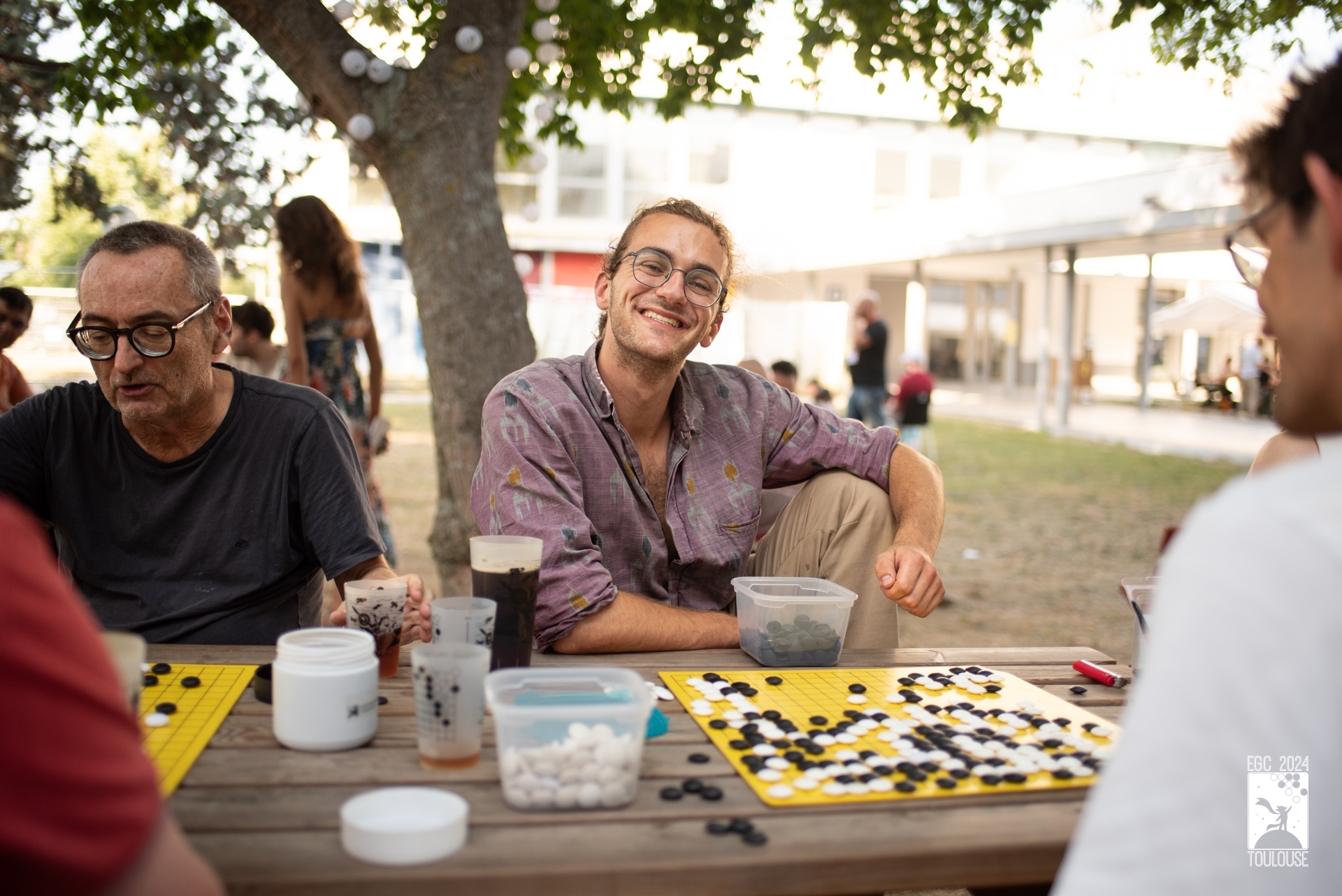
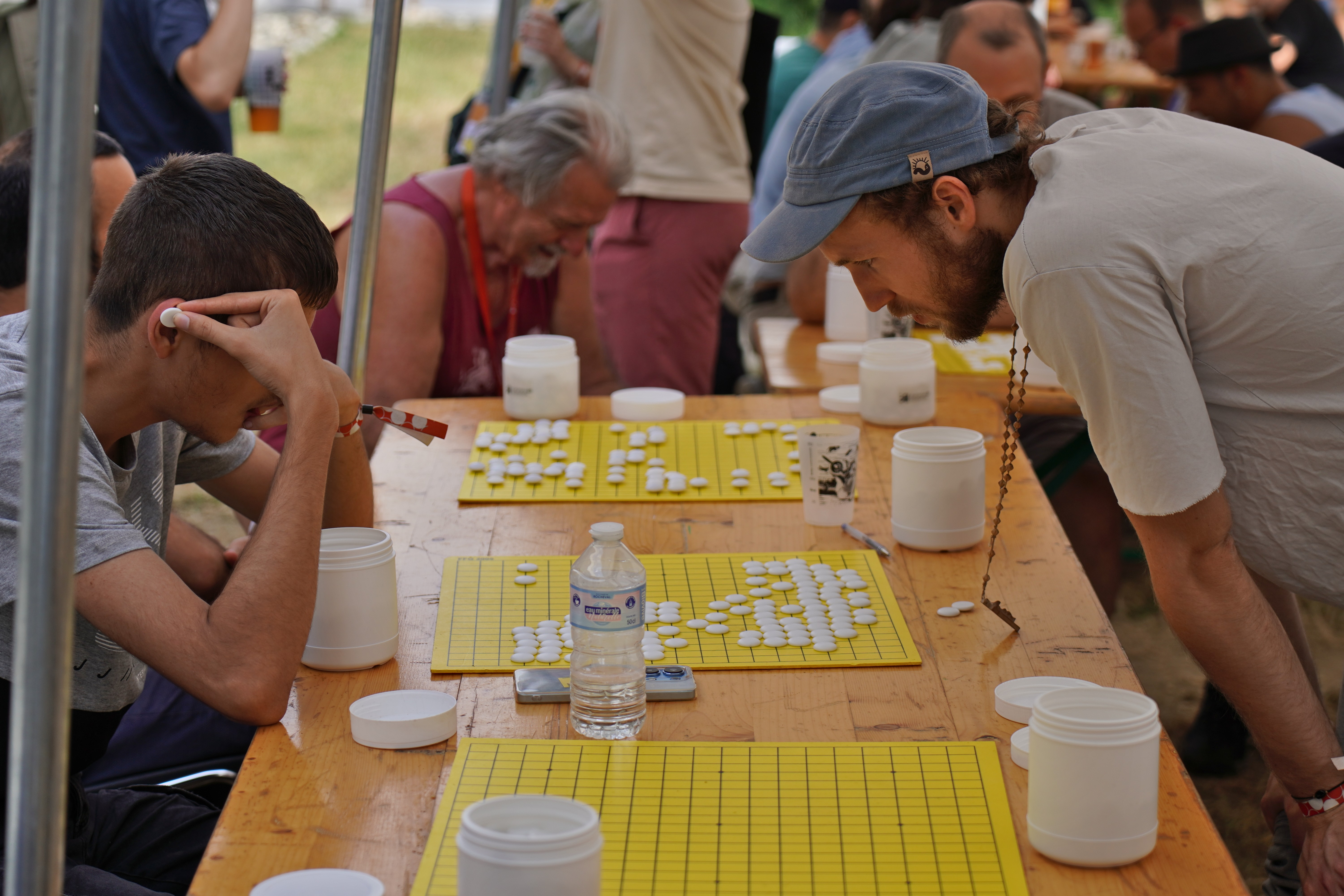
Overall, the EGC went well it seems (nobody died (outside of the go board (at least that's what we told the police))), despite the heat of southern France combined with climate crisis, imposing a toasty 37-39° degrees on the very dry campus, and something close to 150° in the sleeping rooms if you had forgotten to pull down your blinds and close the windows before leaving for your morning game. Fortunately, in the playing rooms – except for the gym –, the aircon was working at full pace, making it almost chilly during the games.
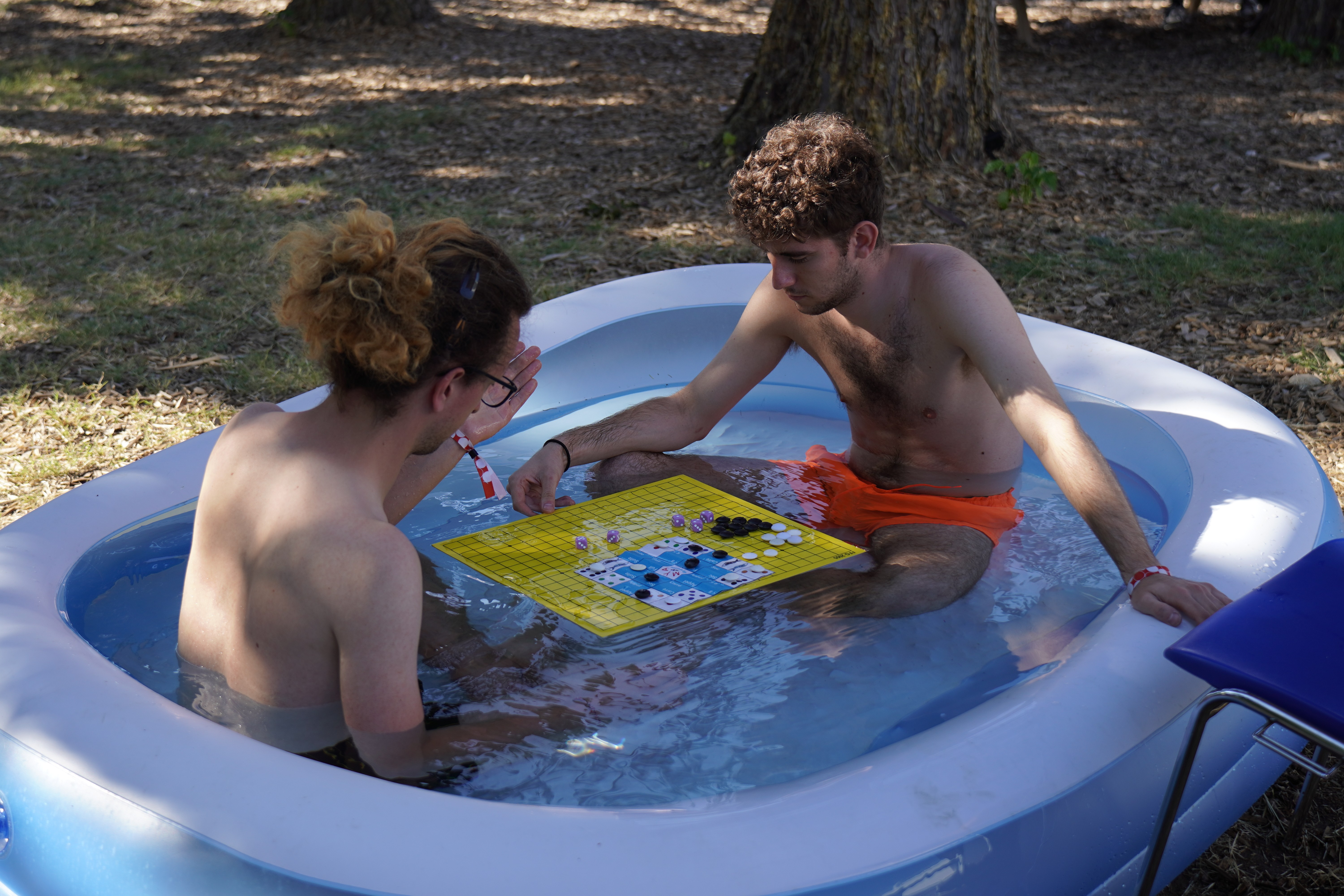
At this EGC, the organising team, led by Jean-Yves Papazoglou, had worked hard to make many professional players from Asia and Europe available to both review games and play simultaneous games. It was a nice surprise to see some familiar "EGC" faces, such as Hayashi Kozo 7p from the Kansai Ki-in in Japan and Choi Wonjin 3p from the Korean Baduk Association, teaching relentlessly during the two weeks.
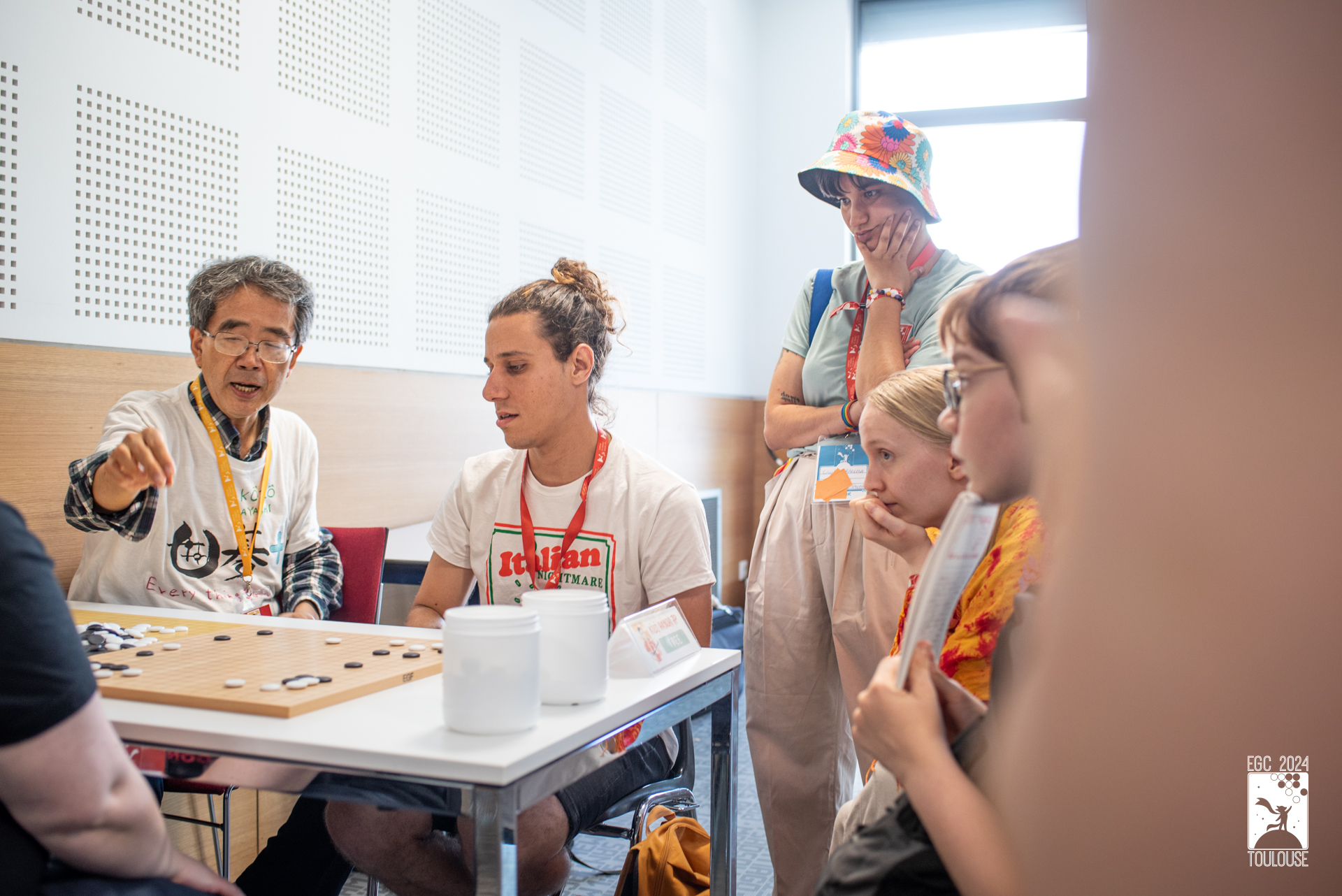
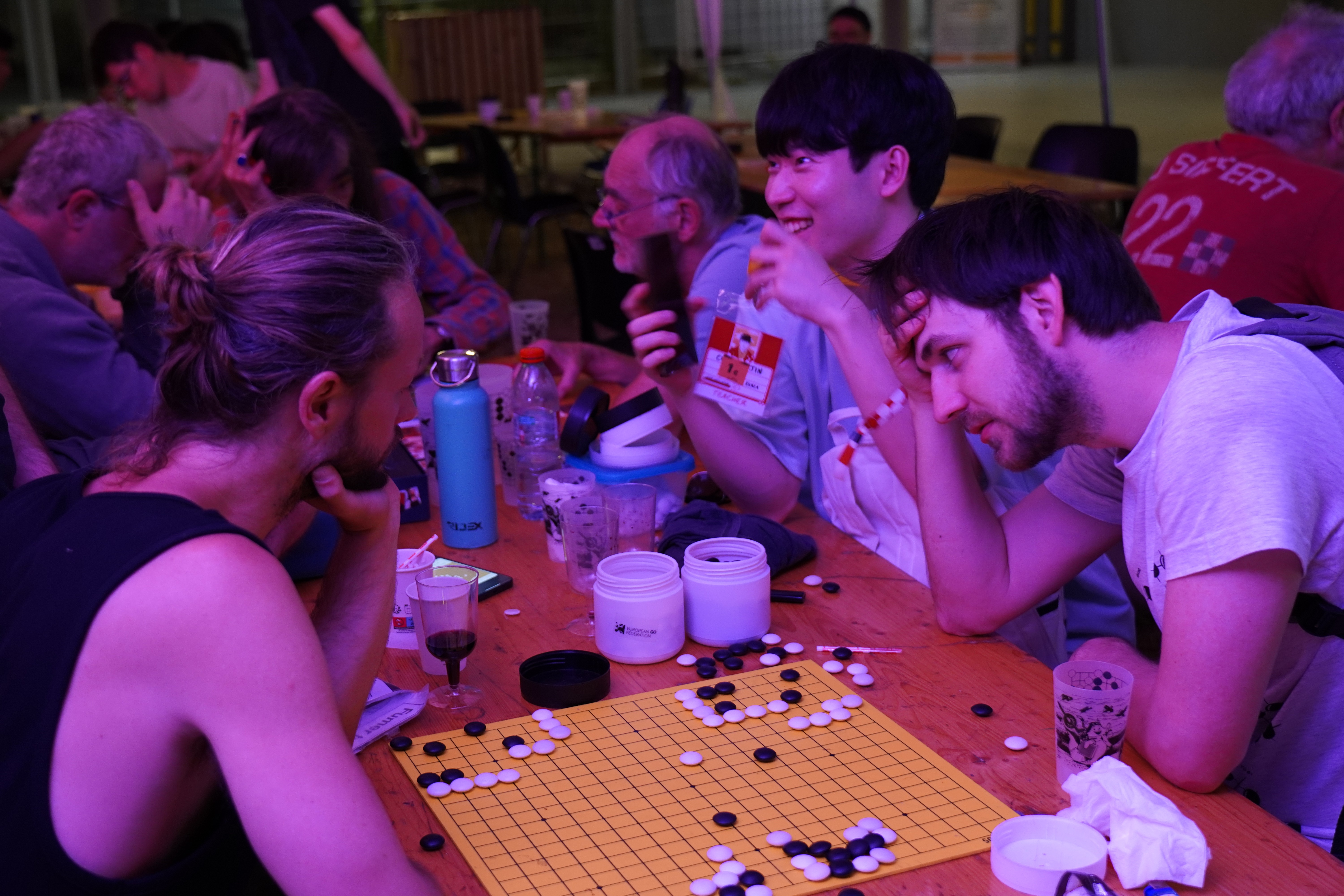
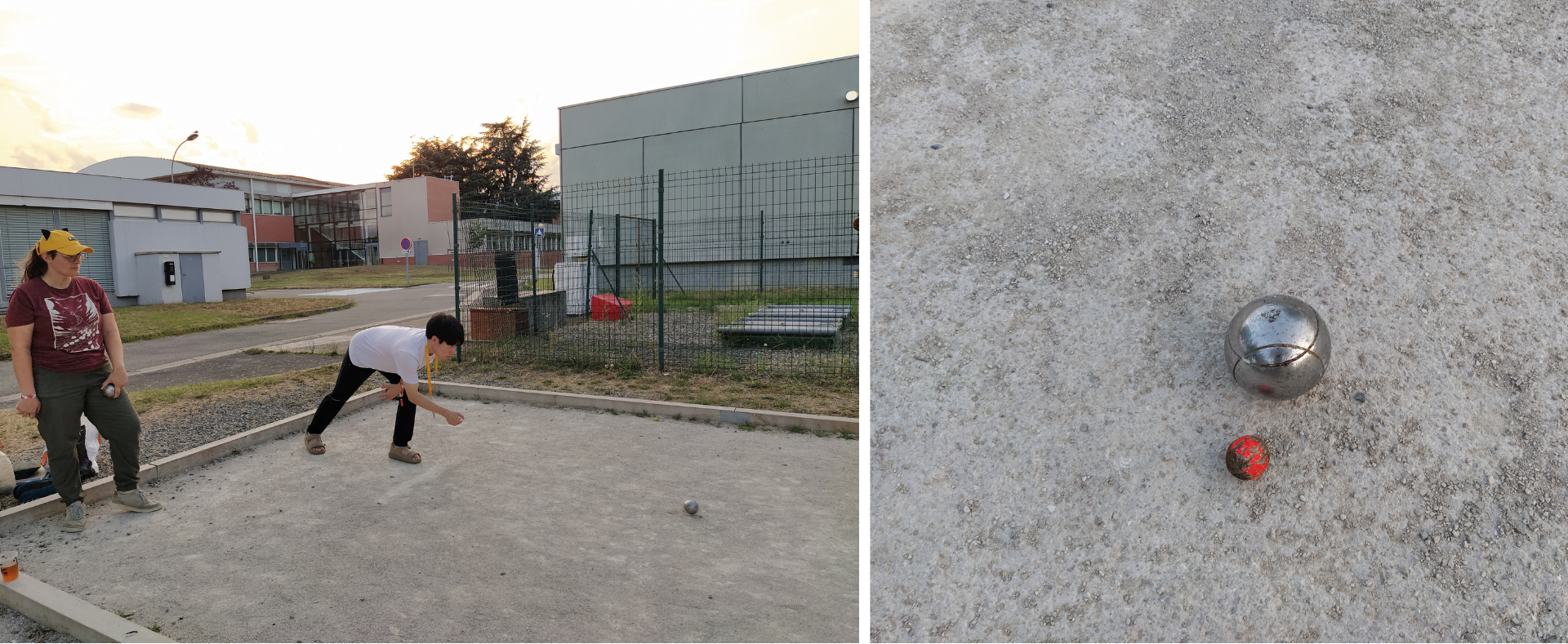
Thus, more than ten pro players from the Chinese Weiqi Association, North American Go Federation, Nihon Ki-in (Japan), Korean Baduk Association, as well as professionals from Europe and strong amateur players were available for teaching, providing masterclasses, reviews and simultaneous games.
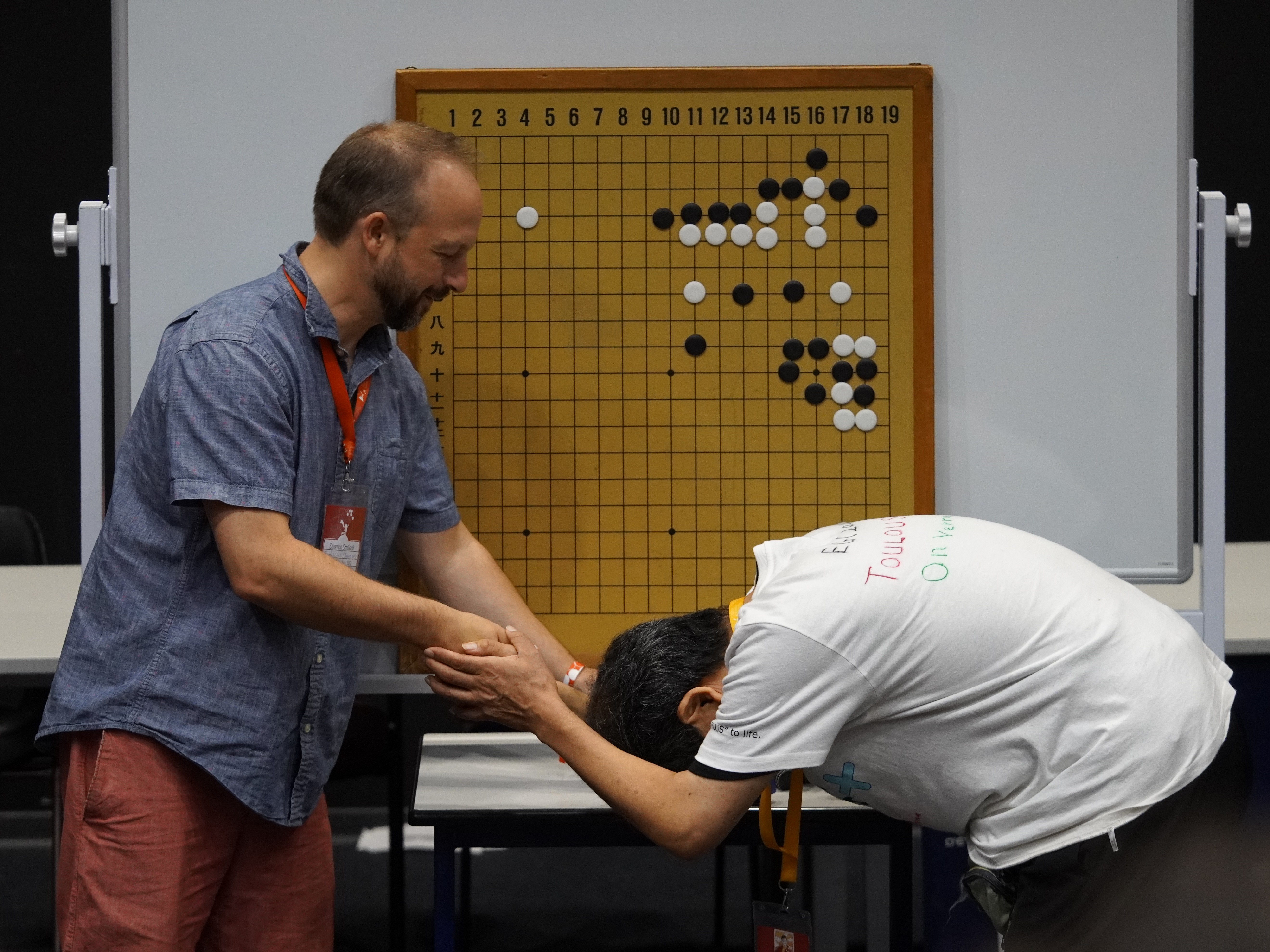
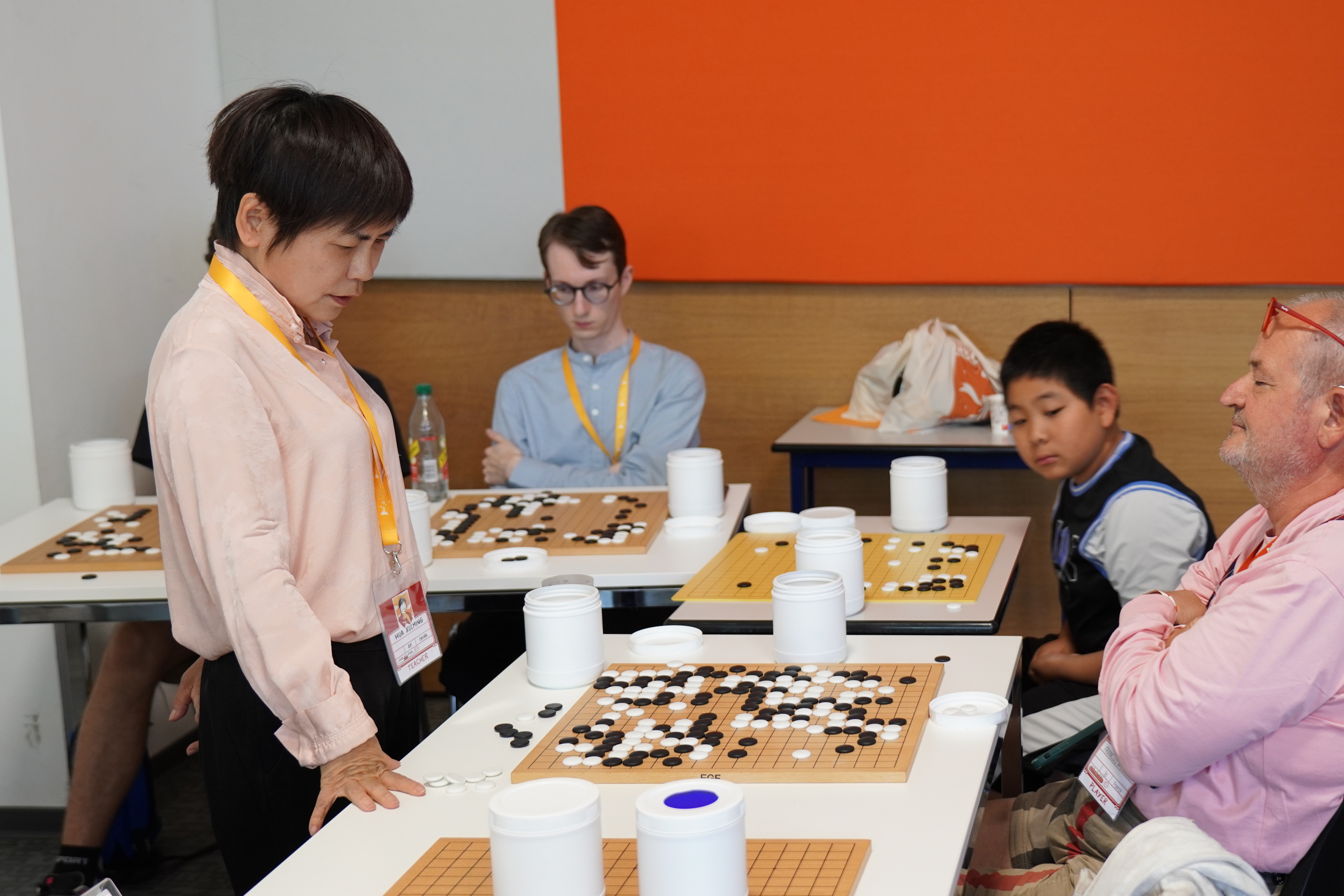
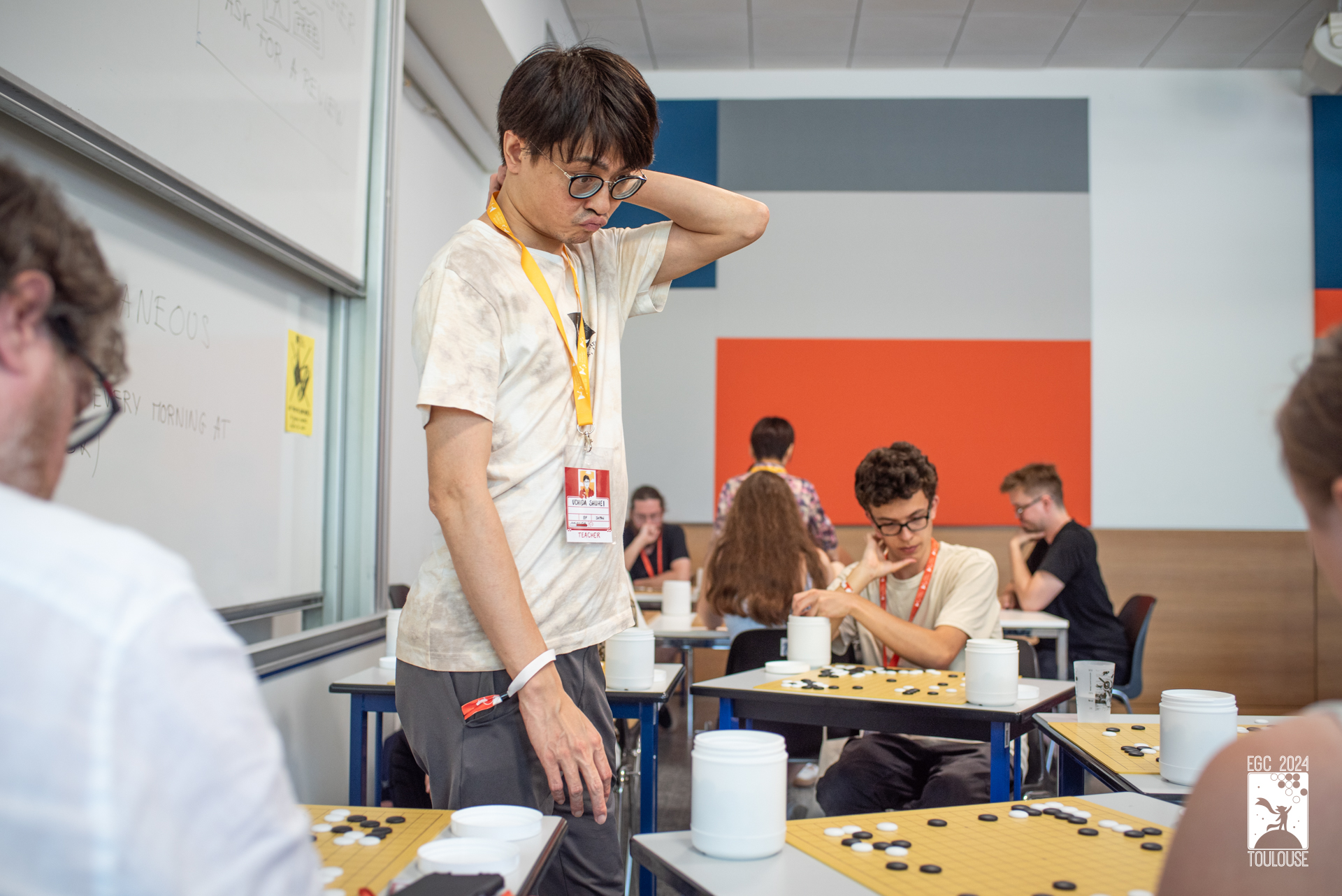
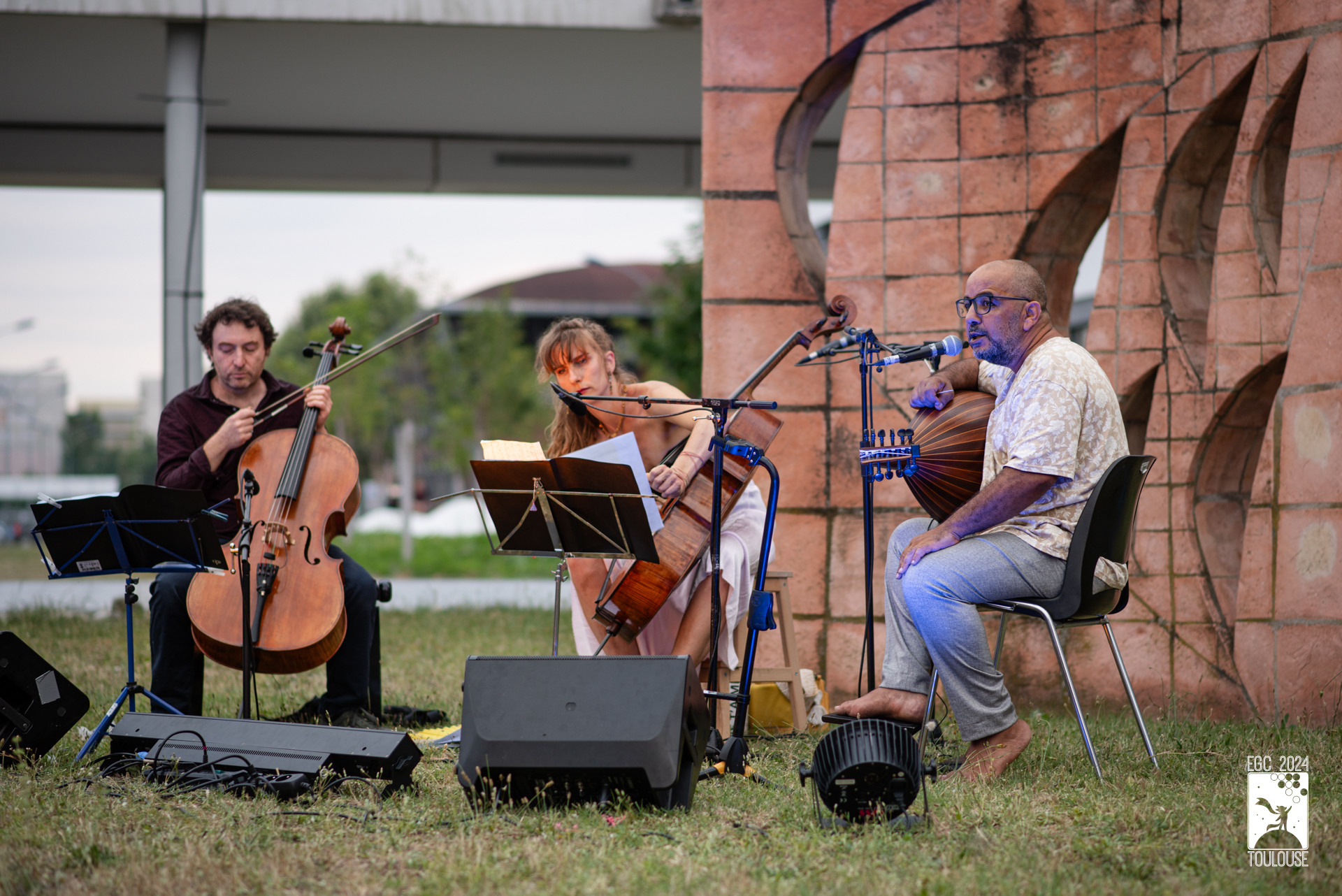
One very funny event was the duel between the 2022 European Champion, Benjamin Dréan-Guénaïzia 7d, and the AI SenseRobot, a very cute robot introduced by Fan Hui 2p from the Nie Weiping Academy.
Okay dear readers, I can feel you all want to read about the European Championship, so let’s talk about it now and continue later on with the other striking updates from the EGC (the ISGS conference, art exhibition, other tournaments...)
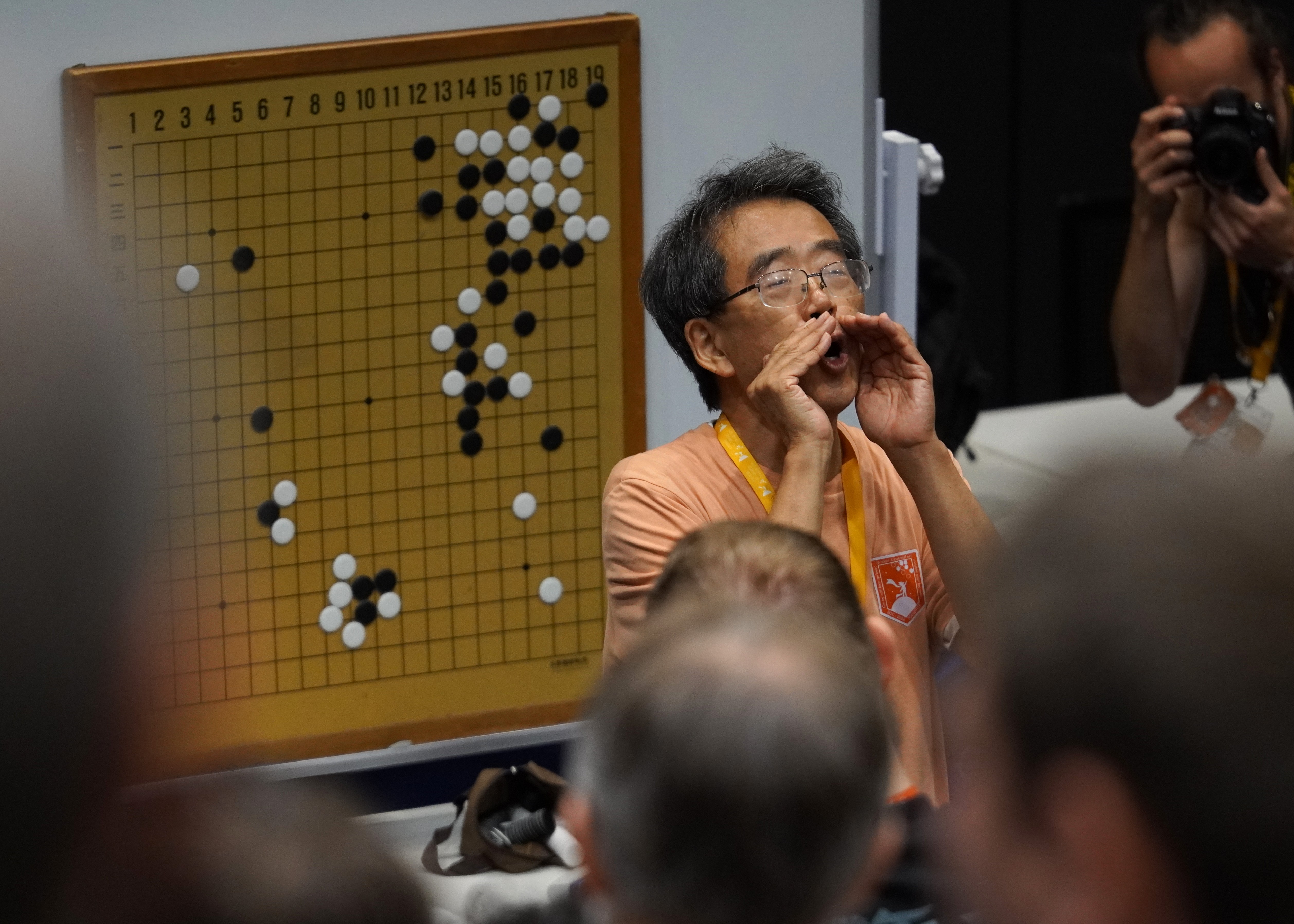
The European Championship
For those who don’t know, in the first week of the EGC, the European Championship takes place. This tournament gathers the top 32 of the strongest (available) players, including three wildcards. This Championship features very long games, thus the long-lasting suspense goes on for at least half a day.
You can find out more about the EC here and (spoiler alert!) also find out who won, if you’re not patient enough to read a couple of lines more (I’ll call you lazy, but you might have already disappeared to the other page).
This year, the games were surprising, with a lot of unexpected victories and, consequently, uncalled defeats. One of the challengers, Denis Karadaban 6d from France, managed his way to the semifinals, where only then he was stopped by Andrii Kravets 1p from Ukraine in a breathtaking game, which turned on an unplayed empty triangle. It was close!
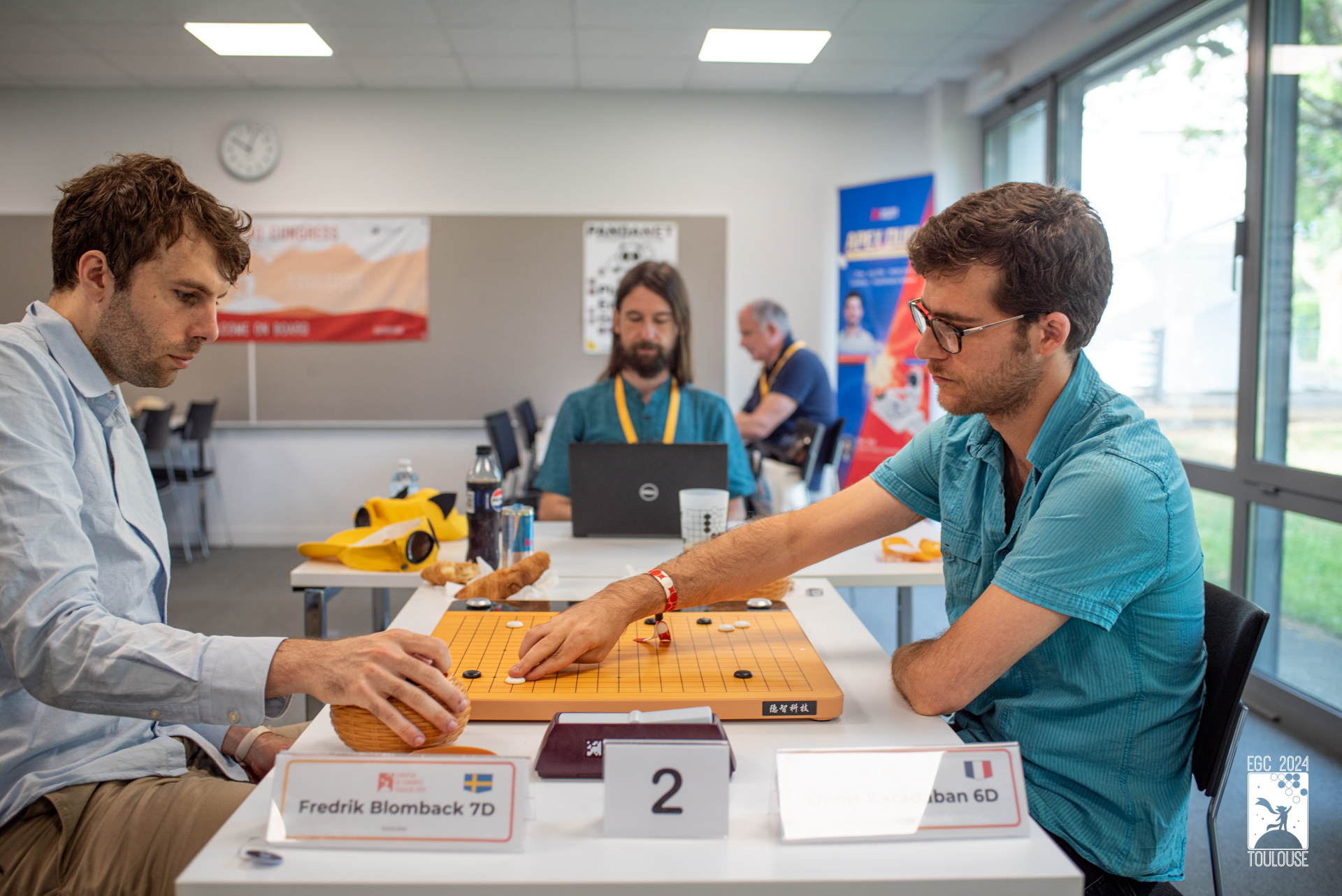
Denis, a small word about your performance?
“I haven't been playing many tournaments outside of France lately, so I was really excited to get to play with top European players. I expected to go out quickly but somehow I won all my games up to the semifinals. I was especially happy that I could play with no pressure and therefore enjoy all of the games a lot.”
Another French player also made it all the way to the final, the French Champion for the past three years, Thomas Debarre 7d. But Andrii, the French-stopper, was there to break Thomas’ winning streak.
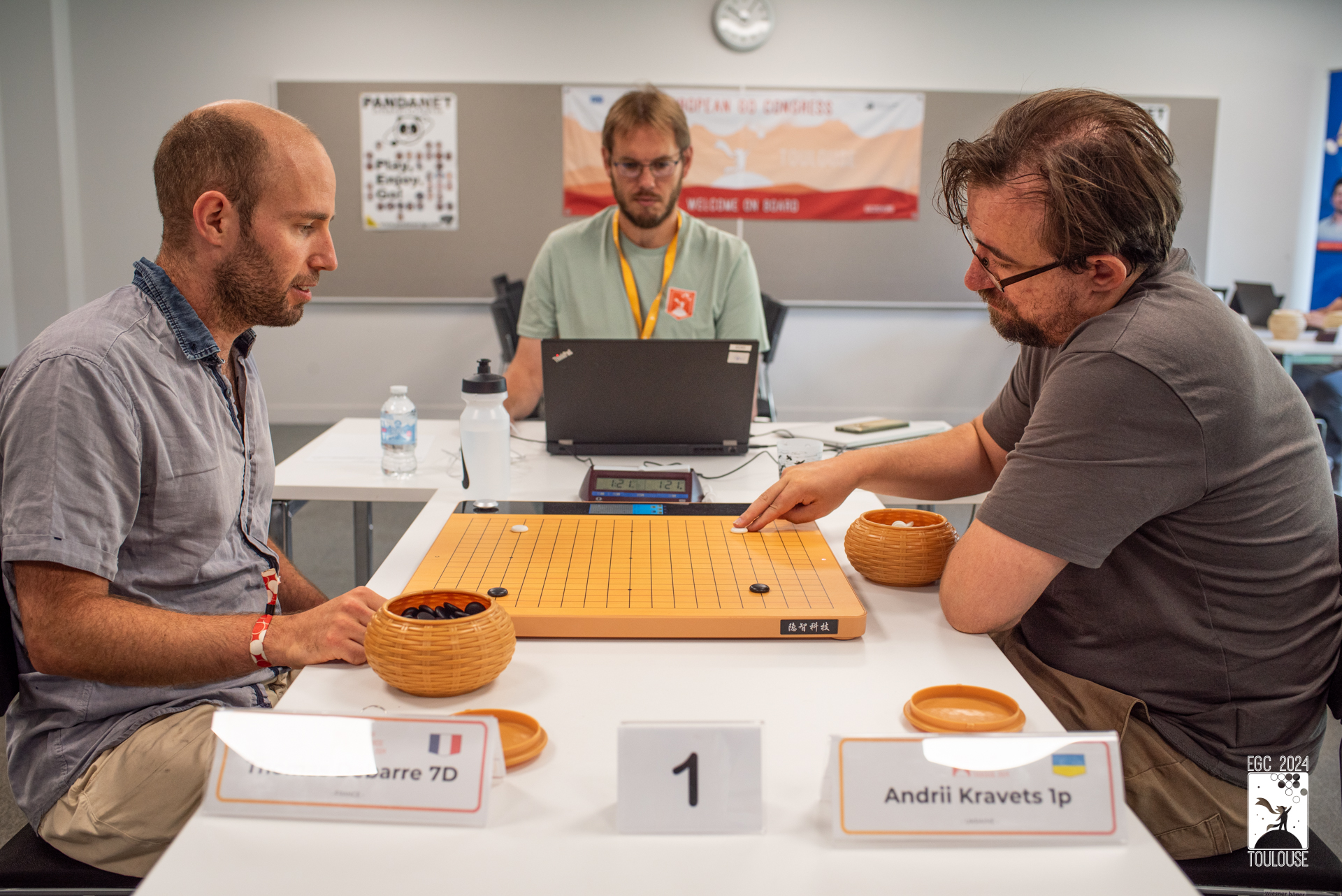
Now you can work it out for yourself: the 2024 European Champion was Andrii Kravets 1p, after he defended his well-deserved title from the previous year at EGC2023!!!!!!!!!!
Andrii, congratulations! How was the EGC and what can you still improve on for next year?
“My first impression of the EGC in Toulouse was that it was hot. During the games, air conditioning helped a lot, but after the game it was hard to think about anything, especially after a long day. About the European Championship, it was a really nice surprise that Dai Junfu 8d competed in this event. This year I played a bit loose, so all games were shaky at some point, maybe from the quarterfinals I started to play more solidly. The most difficult game that I won with a lot of luck was in round 1 against Yuze Xing 5d.
From an emotional point of view, the hardest was the final against Thomas Debarre 7d, especially after I should have killed half of his big group, but I went for the kill of the whole group and I failed.
For me, the second Championship title means a lot. I proved to everyone, and especially myself, that last year's victory was not a one-time event and I can perform on a high level consistently.
This year I had really nice practice in the Chinese C League before the EGC. Even though I finished with a score of 1-5, I was leading in 5 games of 6 in the endgame and somehow lost the advantage. So for me the most important thing right now is to focus on how to finish games and hold on to safe, small advantages. After this I'm sure I will find another thing to improve.”
You can find all the broadcast games on OGS (account "EGC_2024") and on the tournament link above. The games were reviewed live on Twitch and it was possible to enter the room to ask questions and participate.
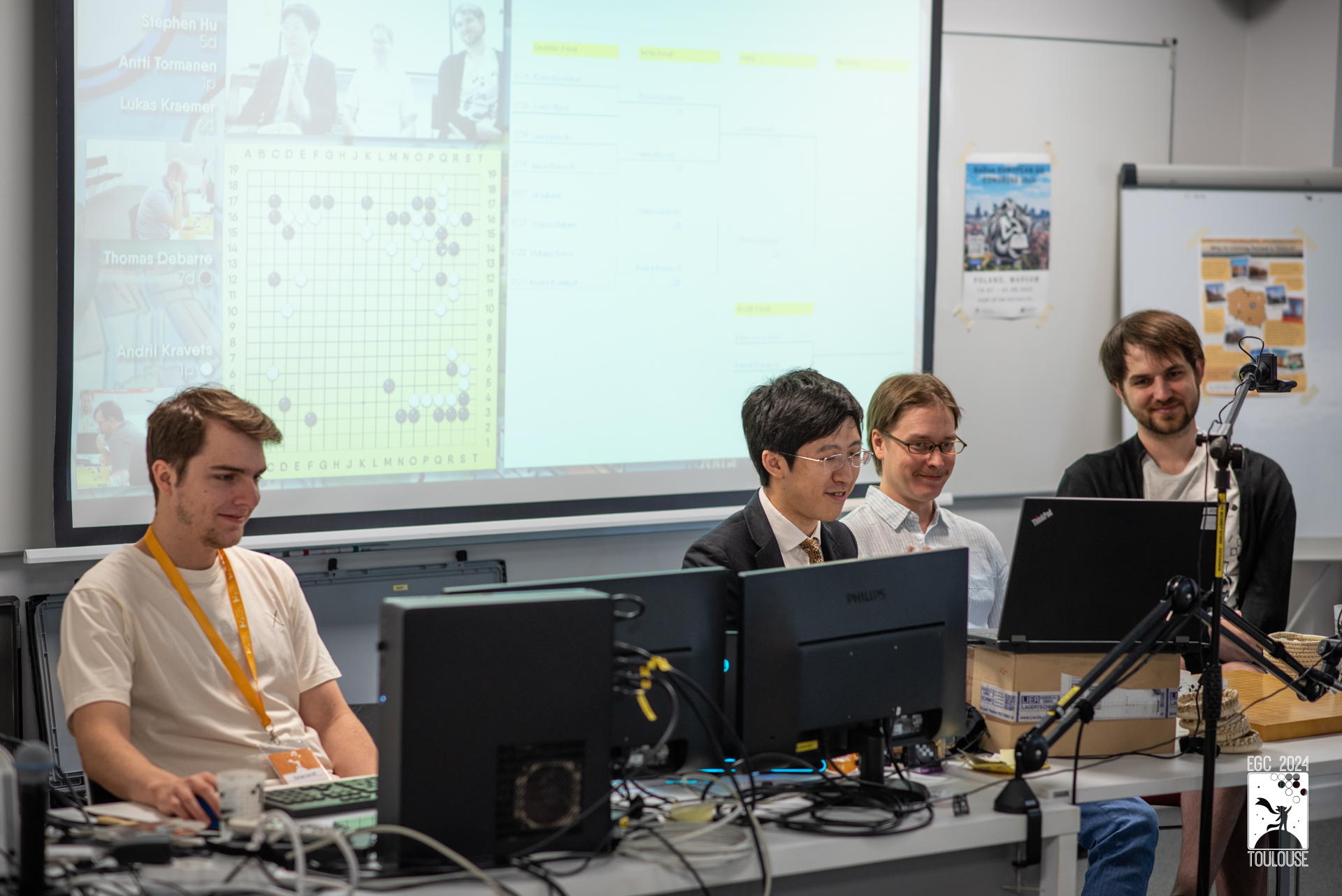
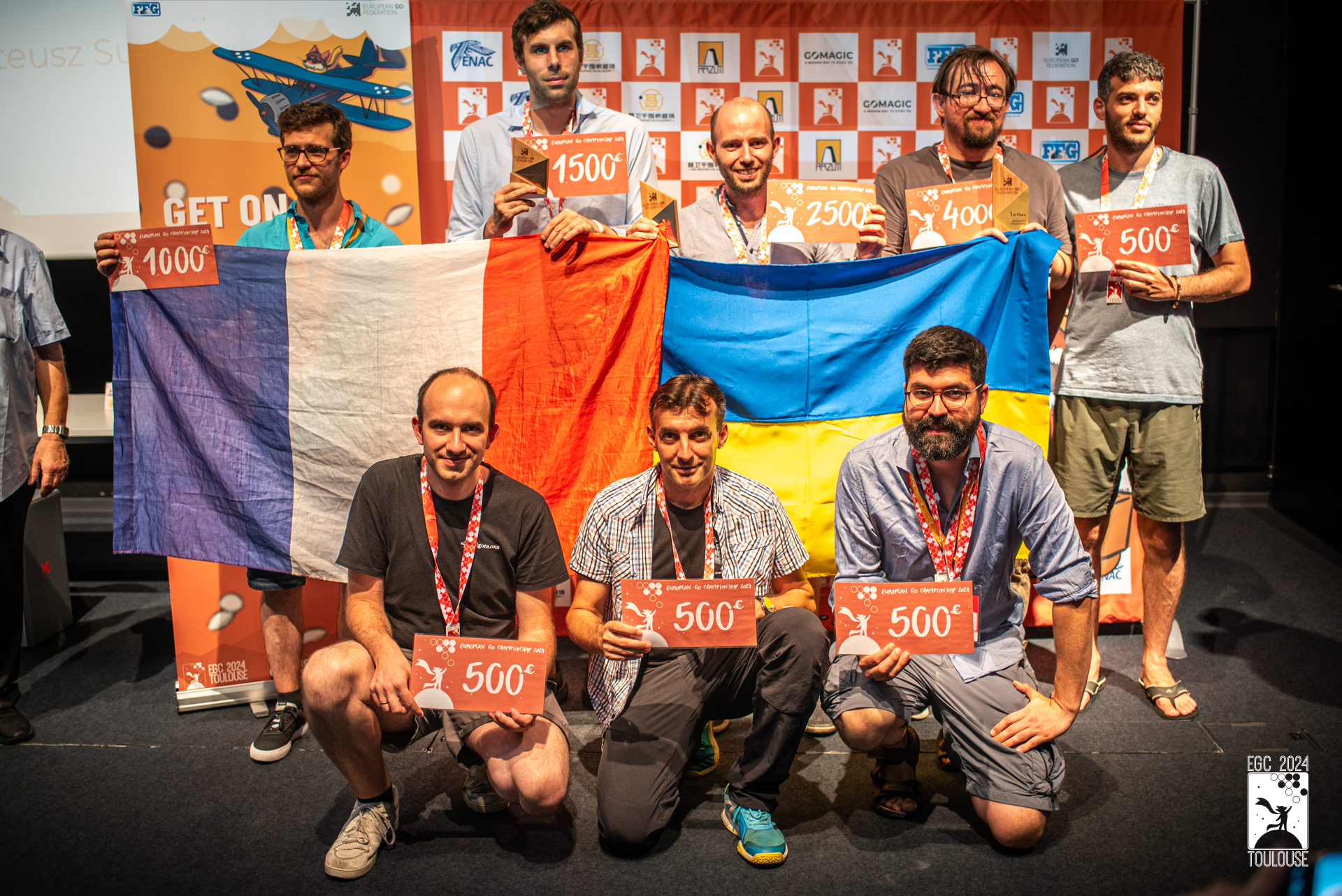
Back to other events
Now, let’s get back to nice pictures and the daily life at EGC.

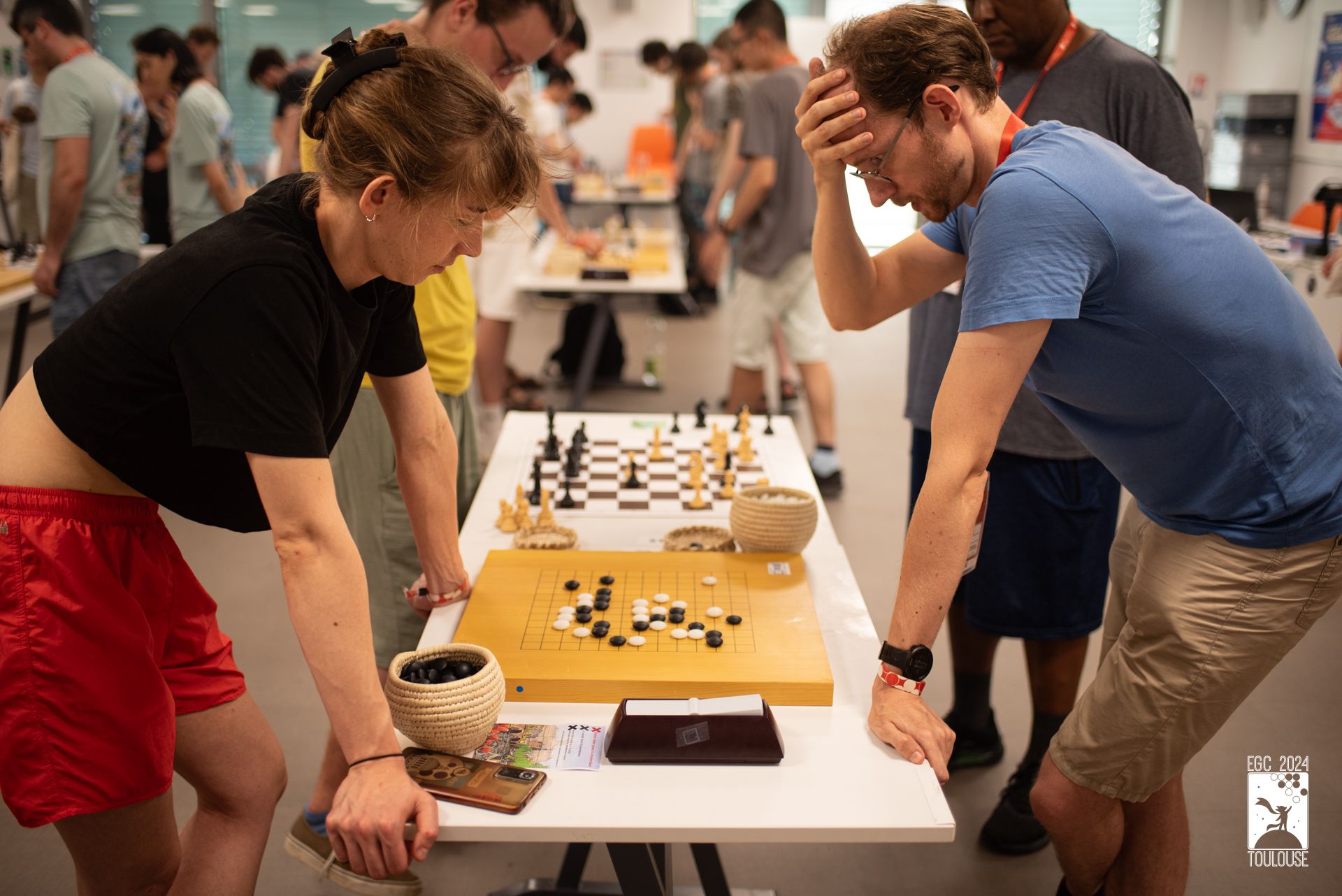
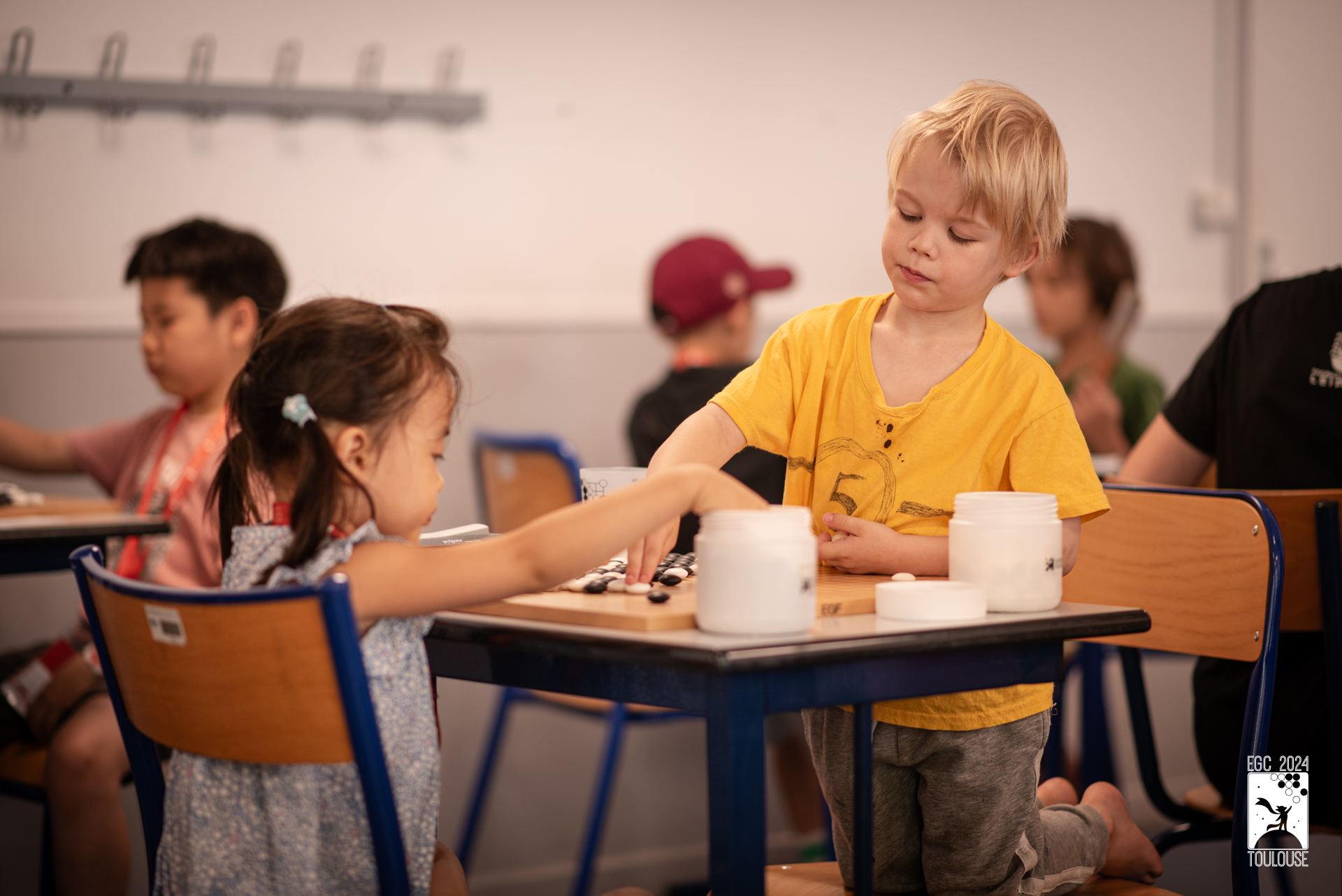
This tournament was counterbalanced by the Kawabata Senior Tournament, where the age limit to participate was a minimum of 50 years old. Ouch! But it’s been heard that in table tennis, for instance, you’re a veteran from age 40 already, so...could have been worse, right?
Avril Fan 5d, Kim Taeyun 5d and Bende Barcza 3d ended up sharing first place in the U12 category, while Scott Cobold 4d from UK won the U18 group.
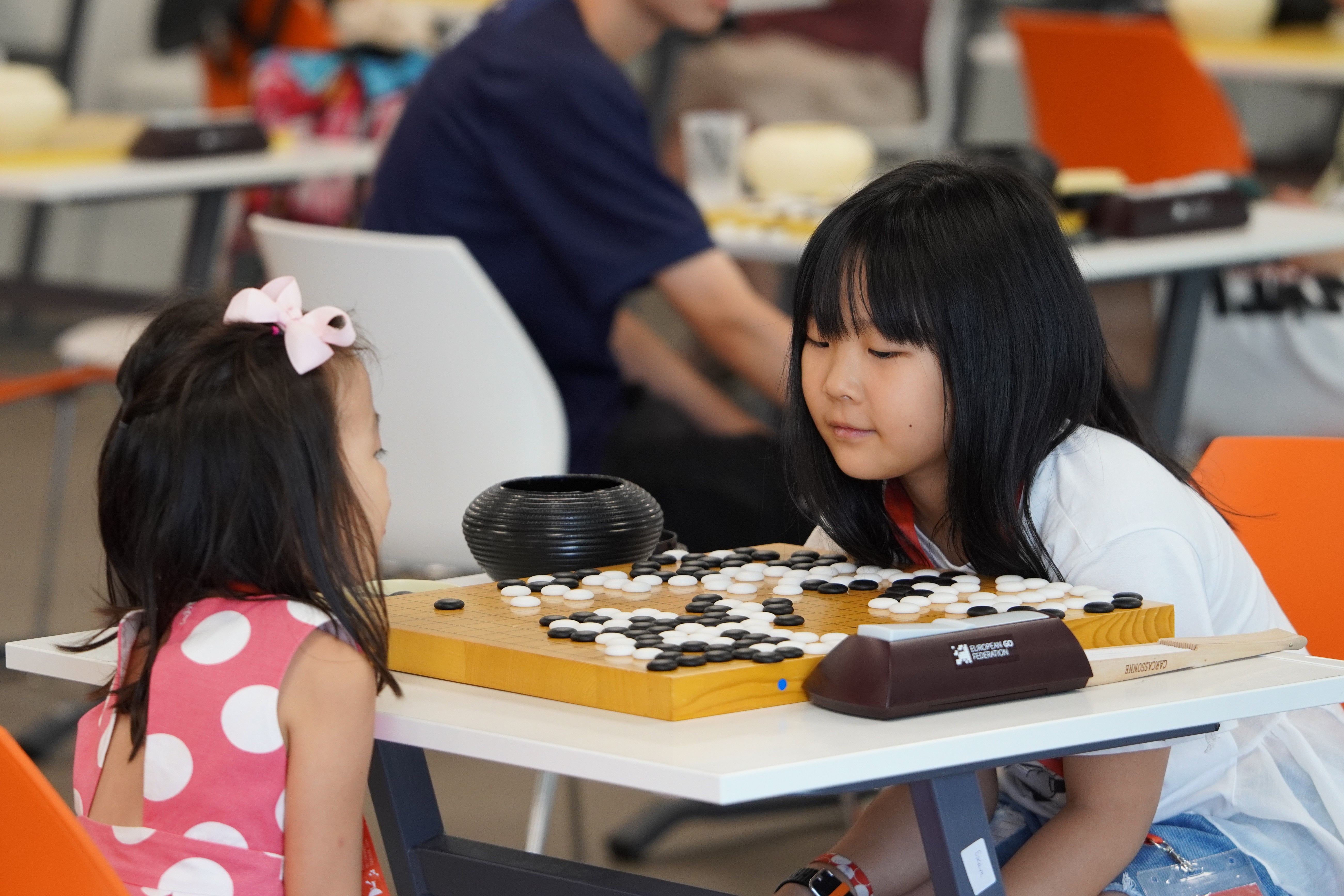
It was great news to see so many participants in the Women's tournament, despite the multiple obstacles put in its way – scheduled for the last free day of the EGC, and with the Conference on Go Studies at the same time! Yet, it was still possible to combine a bit of everything, fortunately. This tournament was won by Sooah Kim 7d (Korea), followed by Avril Fan 5d (France) and Miae Han 3d (Korea)
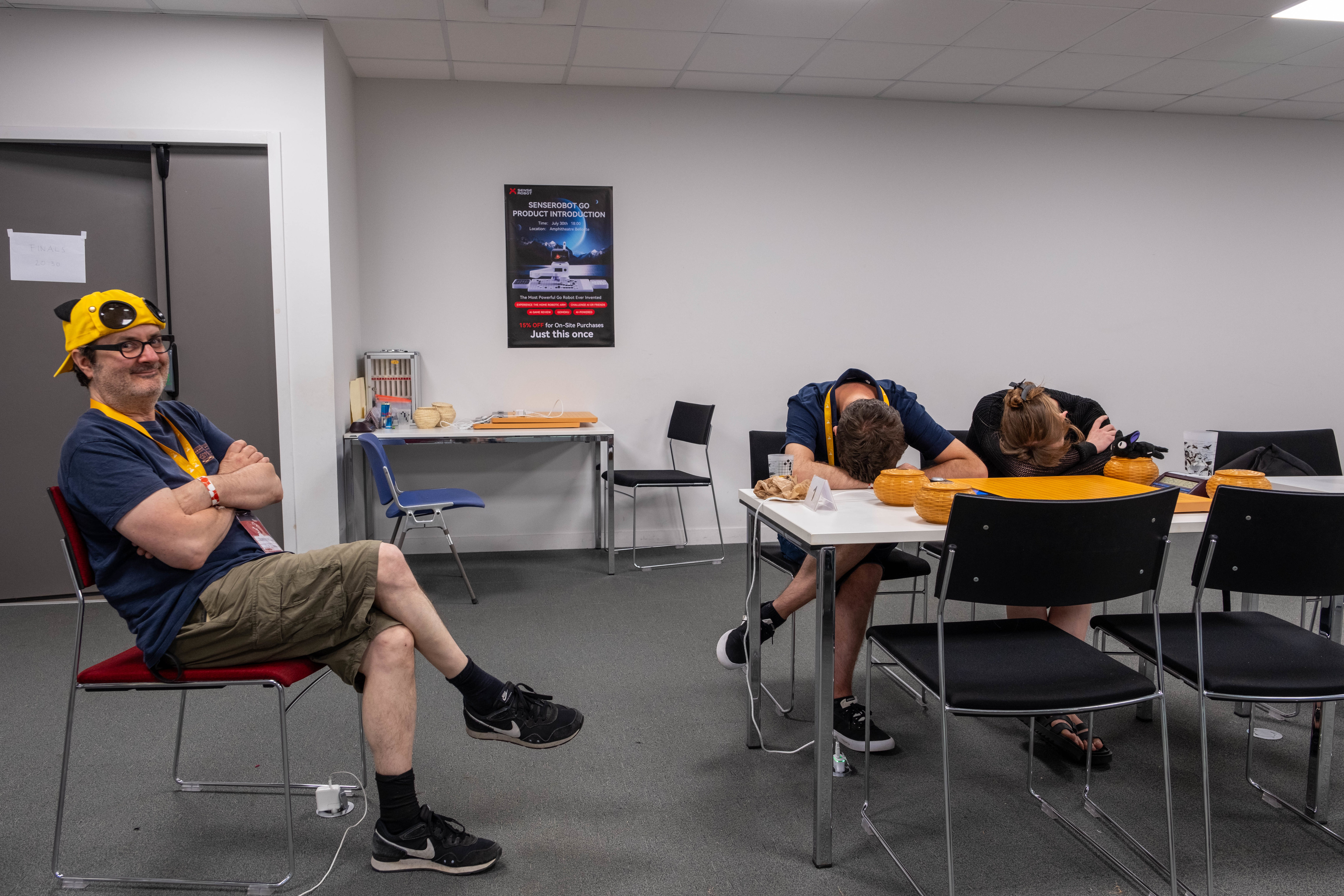
As always, the Pair Go tournament, sponsored by the Japanese and World Pair Go Associations, had a lot of success. Pair Go is played with a woman and a man playing one move one after the other, it’s a very interesting way to get in the head of another player and, often, improve you own skills! If you've never tried it, then you should.
In total, there were six groups of different levels, making a cumulated large number of winners and many games with surprising results.
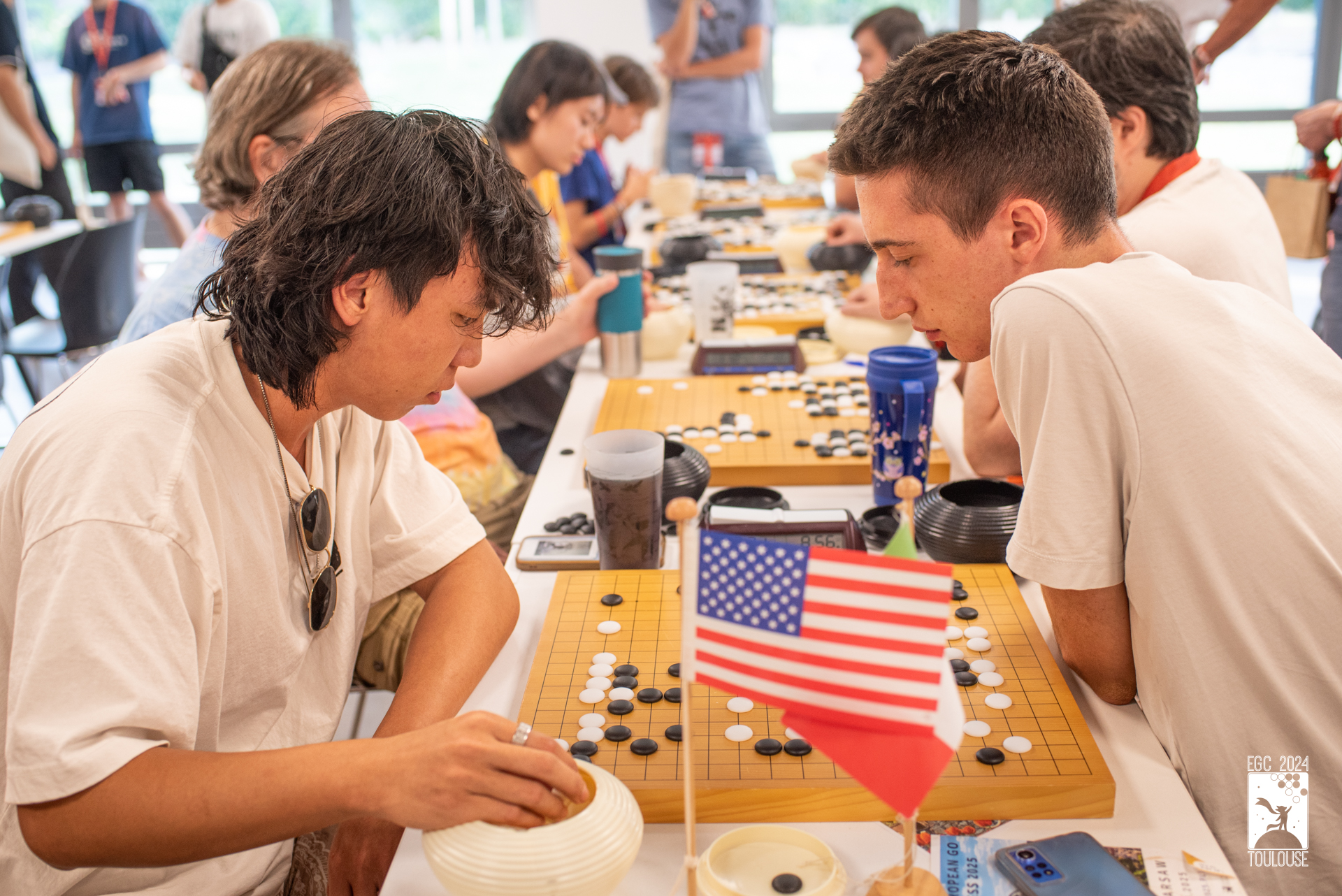
One new event was the Nations' Cup, played during the second week. This was a test year, with the rules changing a few times to make teams able to compete. Similar to the Pandanet Team Champs but with an Open section and the possibility to join forces in case of a lack of players in a country, and the participation of teams from outside Europe. The Nations Cup had teams of five including a woman and a U20 player.
Korea, followed by China and France, won this small tournament.
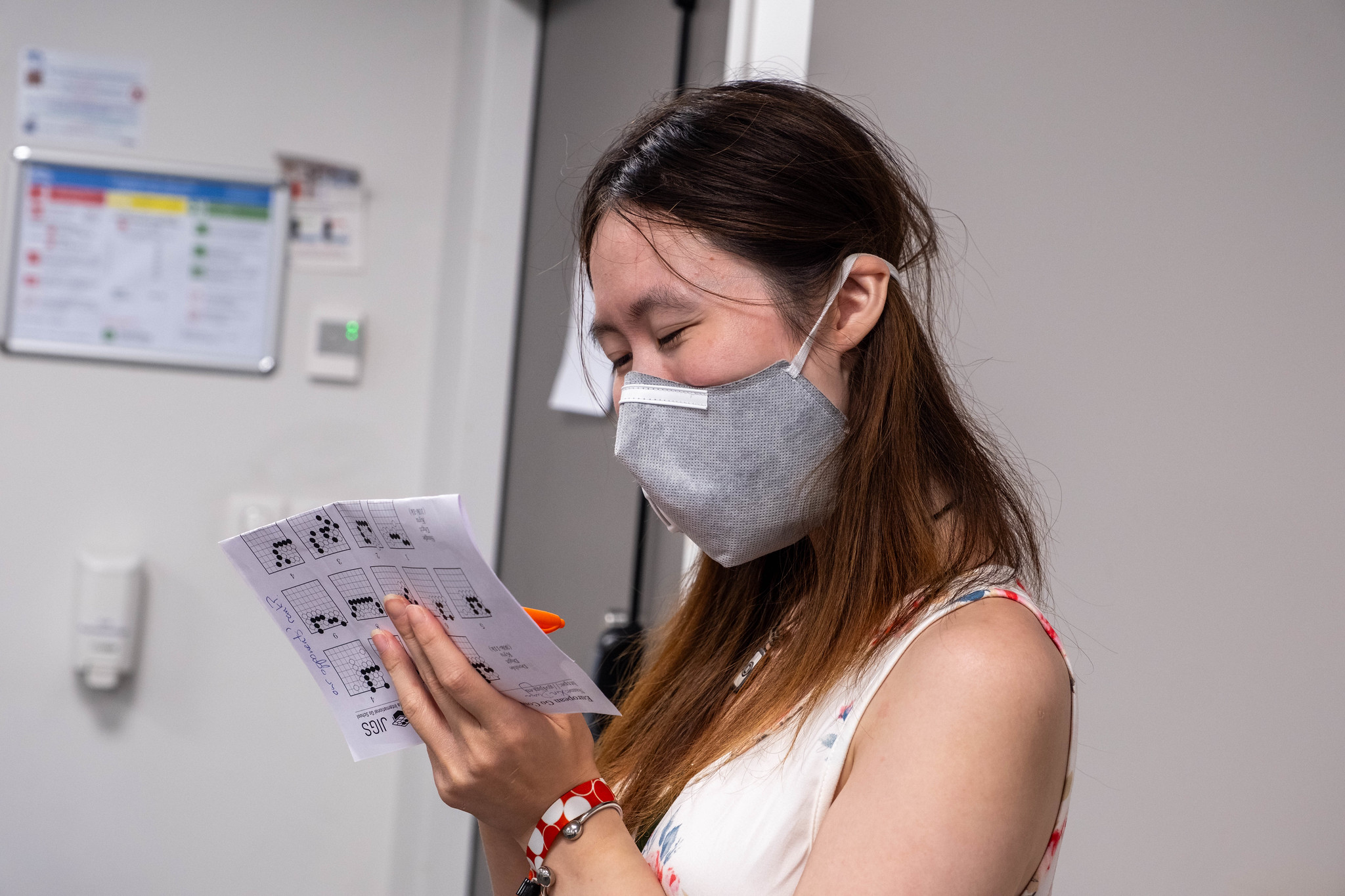
For the second year, the Jena International Go School (JIGS) challenged participants with daily tsumego to solve, corrected each evening by Andrii Kravets 1p, Stanislaw Frejlak 1p and Mateusz Surma 3p. Those who collected enough points could attend a class and win small prizes!
EGC Main, Go Magic Rapid and Nie Weiping Weekend Tournaments
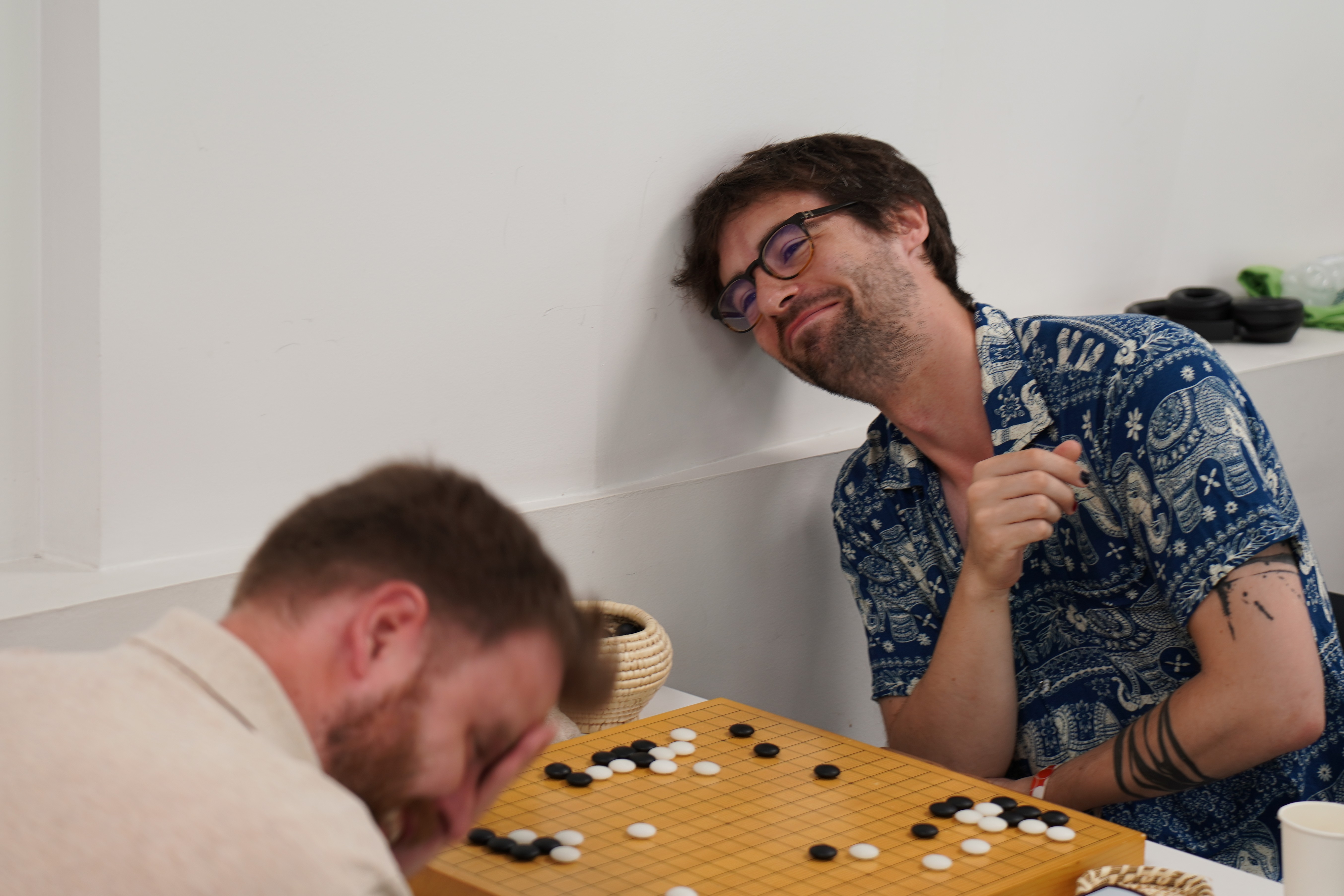
That was even more true for the first round, which started with a huge two-hour delay due to many factors: the registration of participants, late arrivals caused by a major problem with train systems and small bugs in the pairing software. Oops... Fortunately, everyone was kind enough to keep cool, and on the following days the pairings appeared with no big delays.
This ten-round tournament was won by Kim Ji-Tae 7d from Korea with 9 wins, followed by Yang Yaoling 6d (GB) and Seungmin Oh 2p (KR).
Many players managed to get 10 wins outside of the top group! Congratulations to all who managed to play all the rounds!!
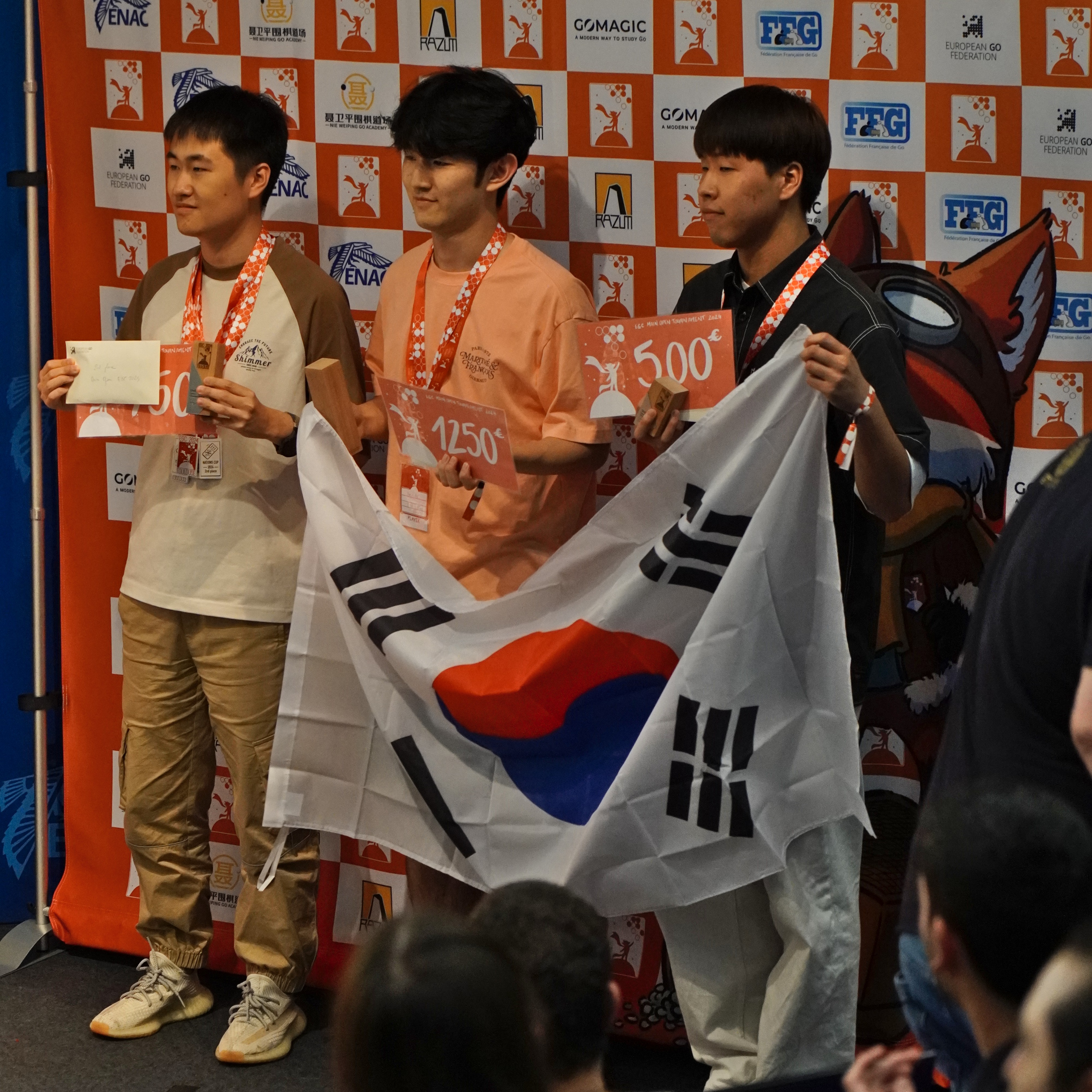
And in the Nie Weiping Tournament, named this time after the main sponsor of the event, the Nie Weiping Academy represented by Fan Hui 2p (China, but with a long history in Toulouse!), the winners were Guo Yuzheng 6p (China), followed by Xiao Yicheng 7d (GB) and Seungmin Oh 2p (Korea).
The 2nd ISGS conference
Another key extra of the EGC was the second International Conference on Go Studies, organised by the International Society of Go Studies, represented by Prof Chihyung Nam and Dr. Daniela Trinks, both from Korea. This meeting, gathering go enthusiasts and AI experts, took place in Korea last year, with speakers presenting their research on go to the audience. This year, the theme was ‘AI-Powered Strategies and Innovations in Go’. Participants and EGC attendees were able to listen to a keynote speech by Prof Marius Lindauer, a renowned researcher on AI, as well as various very interesting presentations on the use of AI, discoveries through AI and birth of new AI-powered solutions for go.
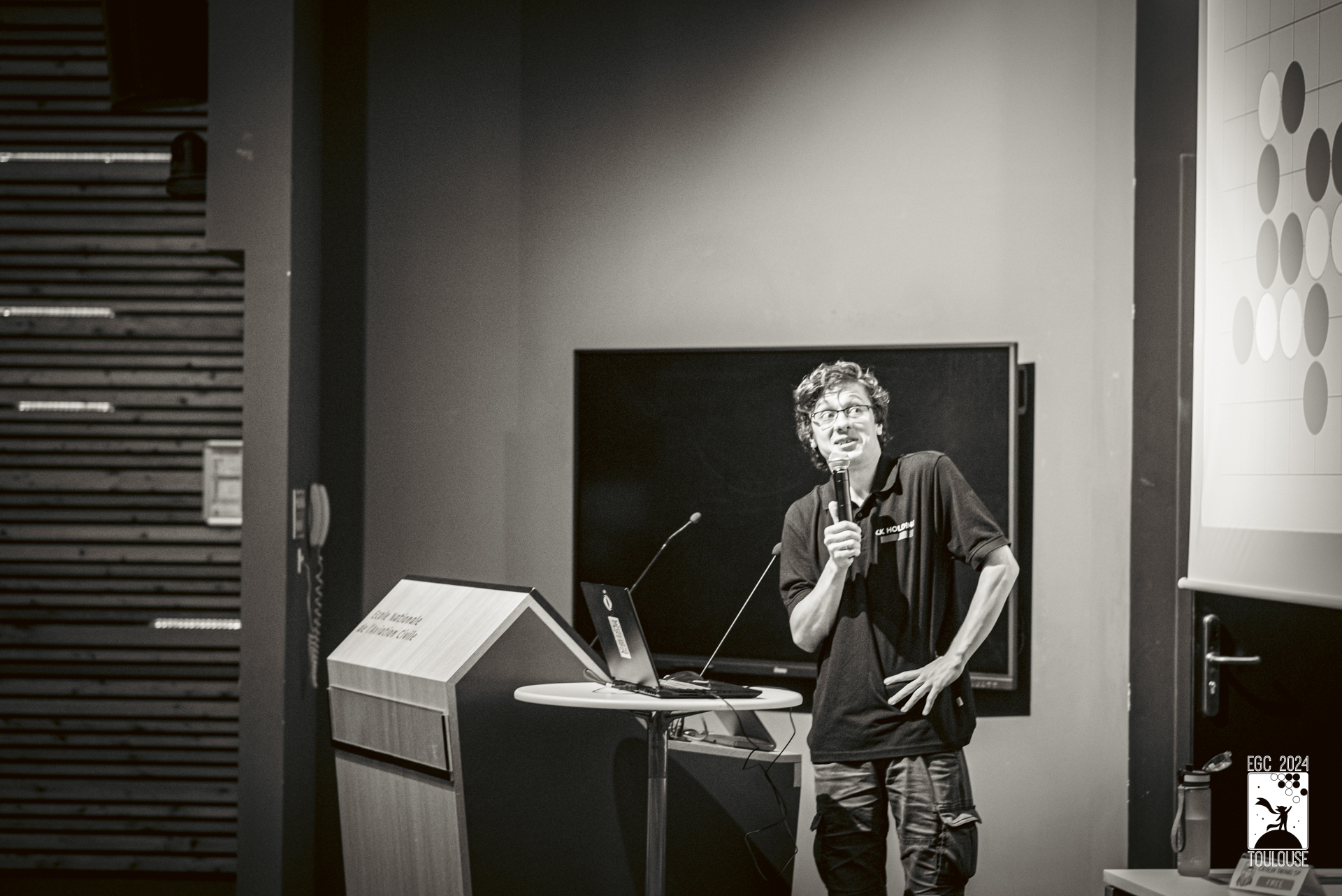
You can find out more on the website: https://www.intergostudies.net/
It was great to see this event growing with many interested attendees who had many questions for the speakers.
And much more!
Other events happened, including an exhibition on art and go, a workshop on inclusion tackling difficult society topics for the go community and the beer and go tournament, with participants' scores depending both on game wins and the number of beers they consumed.
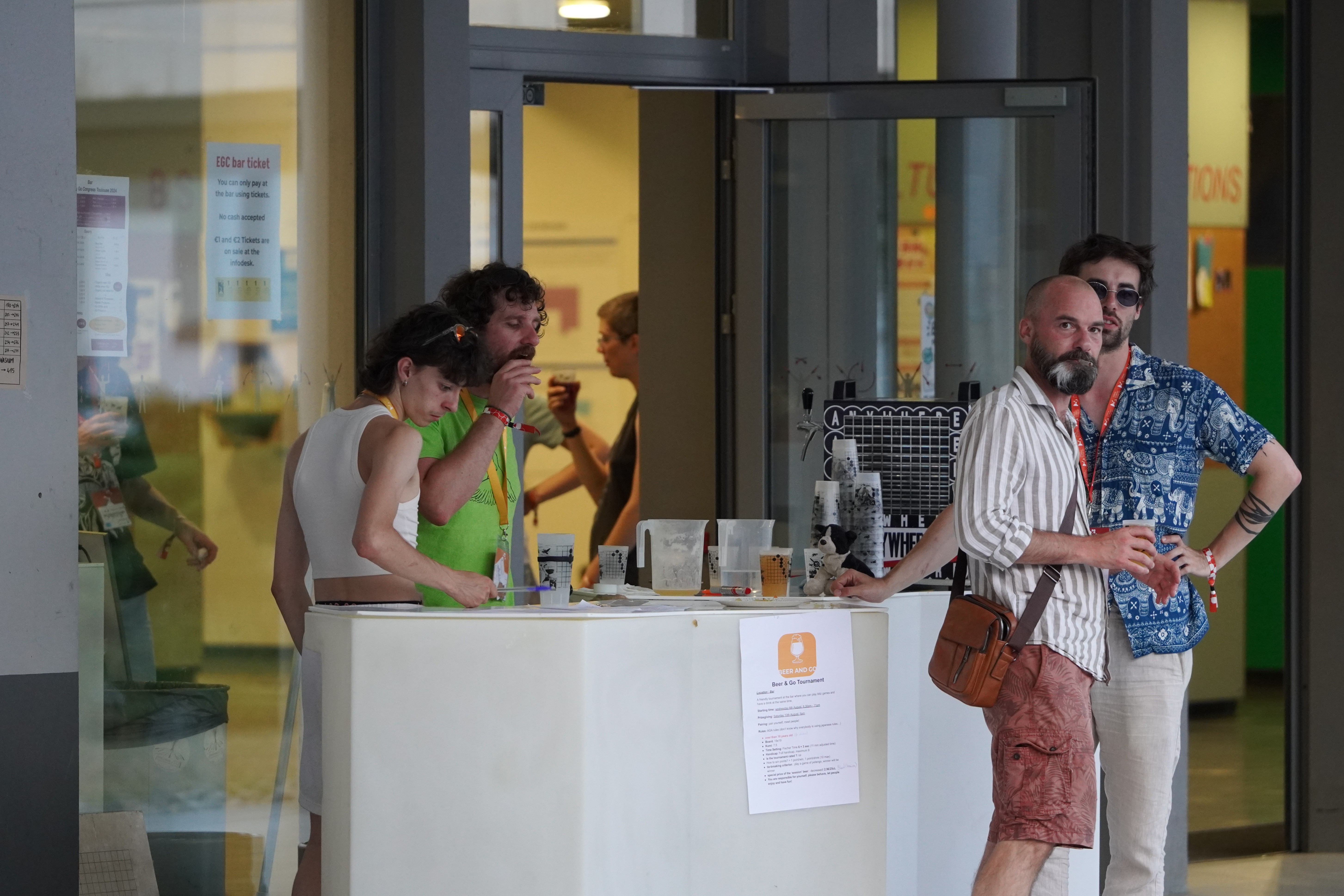
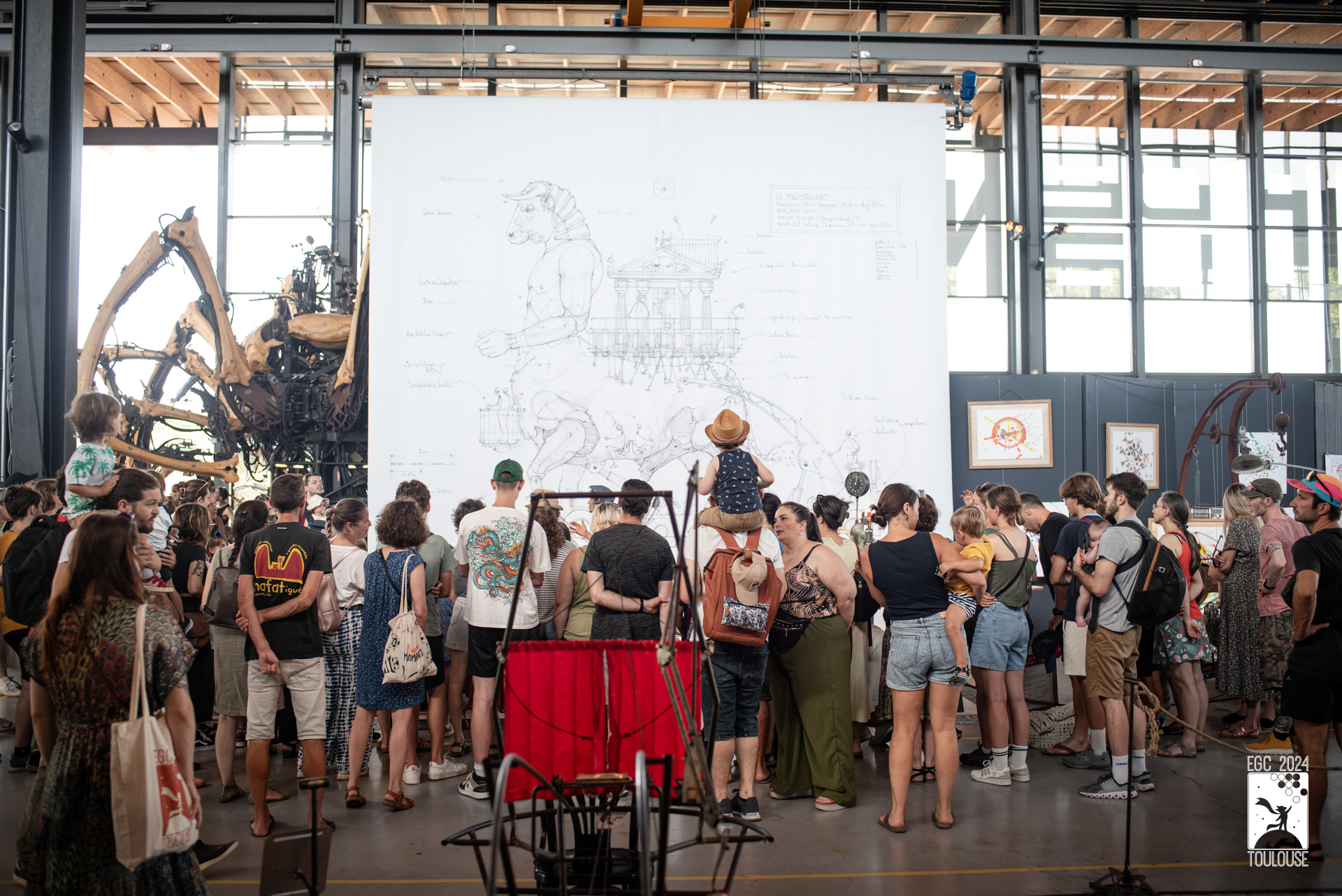
The organisers didn't want participants and visitors to come this far to Toulouse and leave without seeing anything. Therefore, they had organised many trips to various places in or near Toulouse, like the famous Carcassonne city or Airbus Industry, for the biggest joy of participants who had no clue where to go from this far-from-everything playing site.
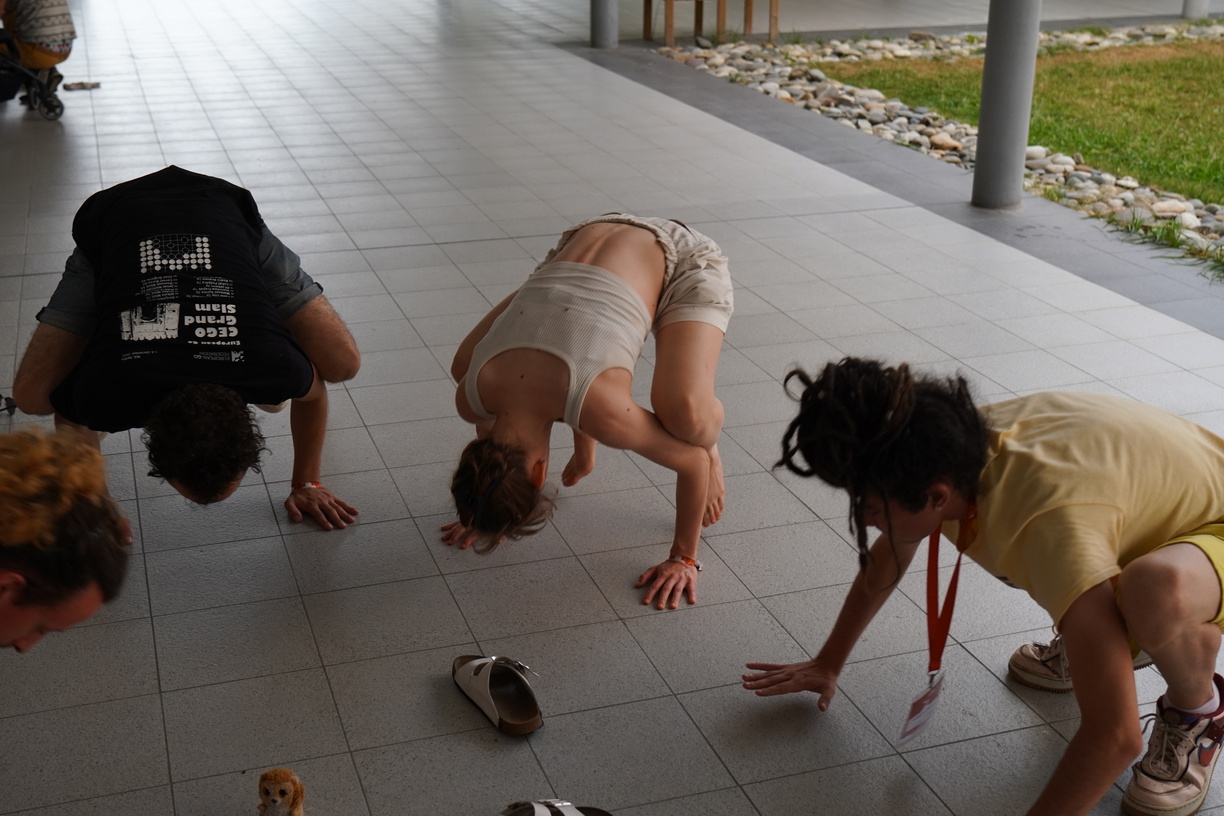
Finally, something cool happened in the Closing Ceremony, with go clubs from Romania, Croatia, UK, Turkey, Germany and France receiving a SenseRobot, the robot brought by Fan Hui, to use in their go clubs and go region/country as a training tool and exhibition masterpiece!
Thank you!
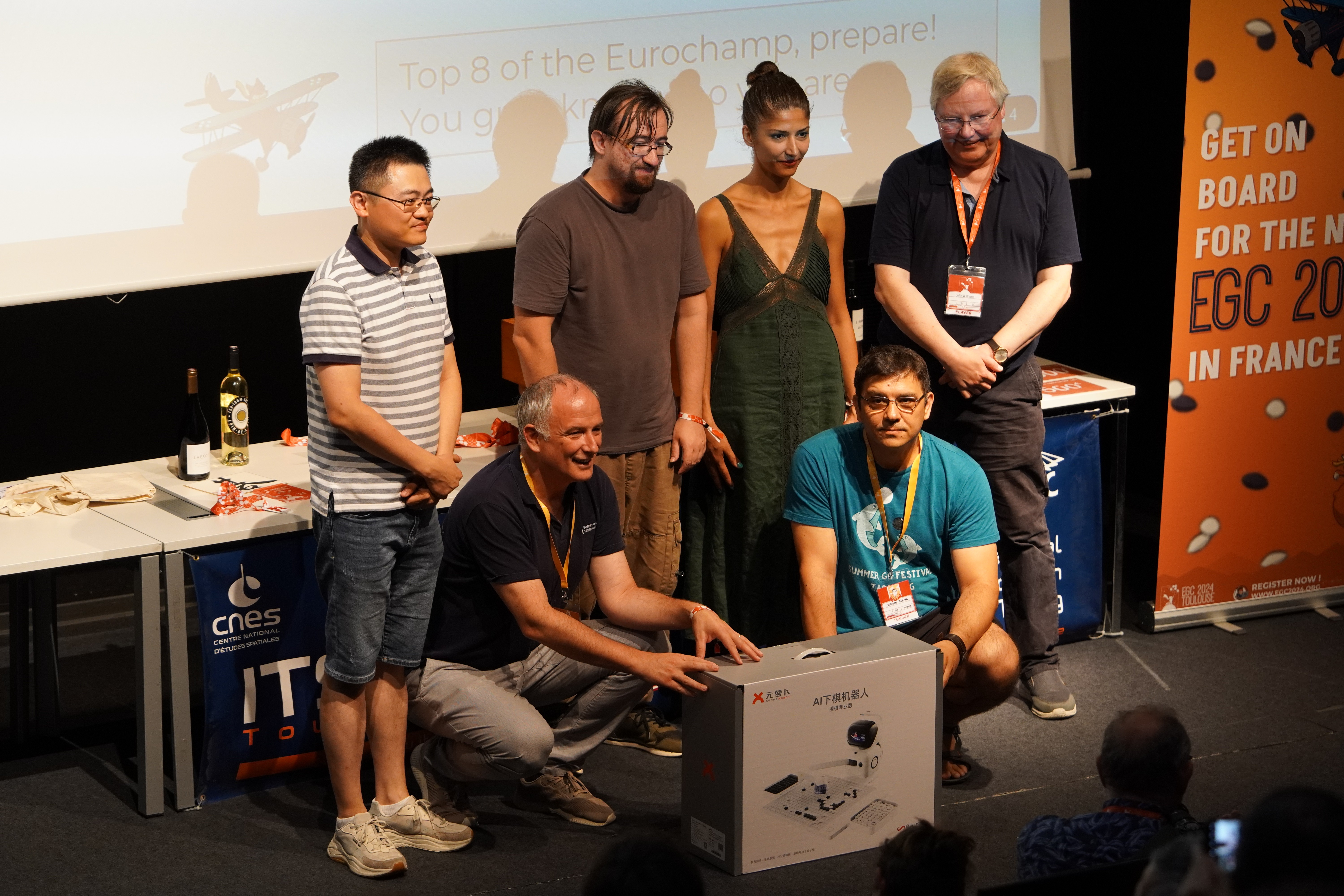
It’s impossible to give you a complete overview of these two weeks, many things happen there and stay there, and many things are also invisible to the eyes, in particular the work of the volunteers before, during and after the event. Yes, there are plenty of things to improve and work on, both for the EGC next year, but also in general for the go community. Let's all strive together to make go more dynamic and the EGC even better next year! :)
As Jean-Yves, the tournament director, says… “Even though everything was not perfect, particularly due to several late arrivals caused by train disturbances on the first weekend, the organization team received an outstanding ovation at the closing ceremony. This demonstrated how much the participants appreciated this record-breaking 66th edition, which had more than 1400 participants and over 1000 players!”
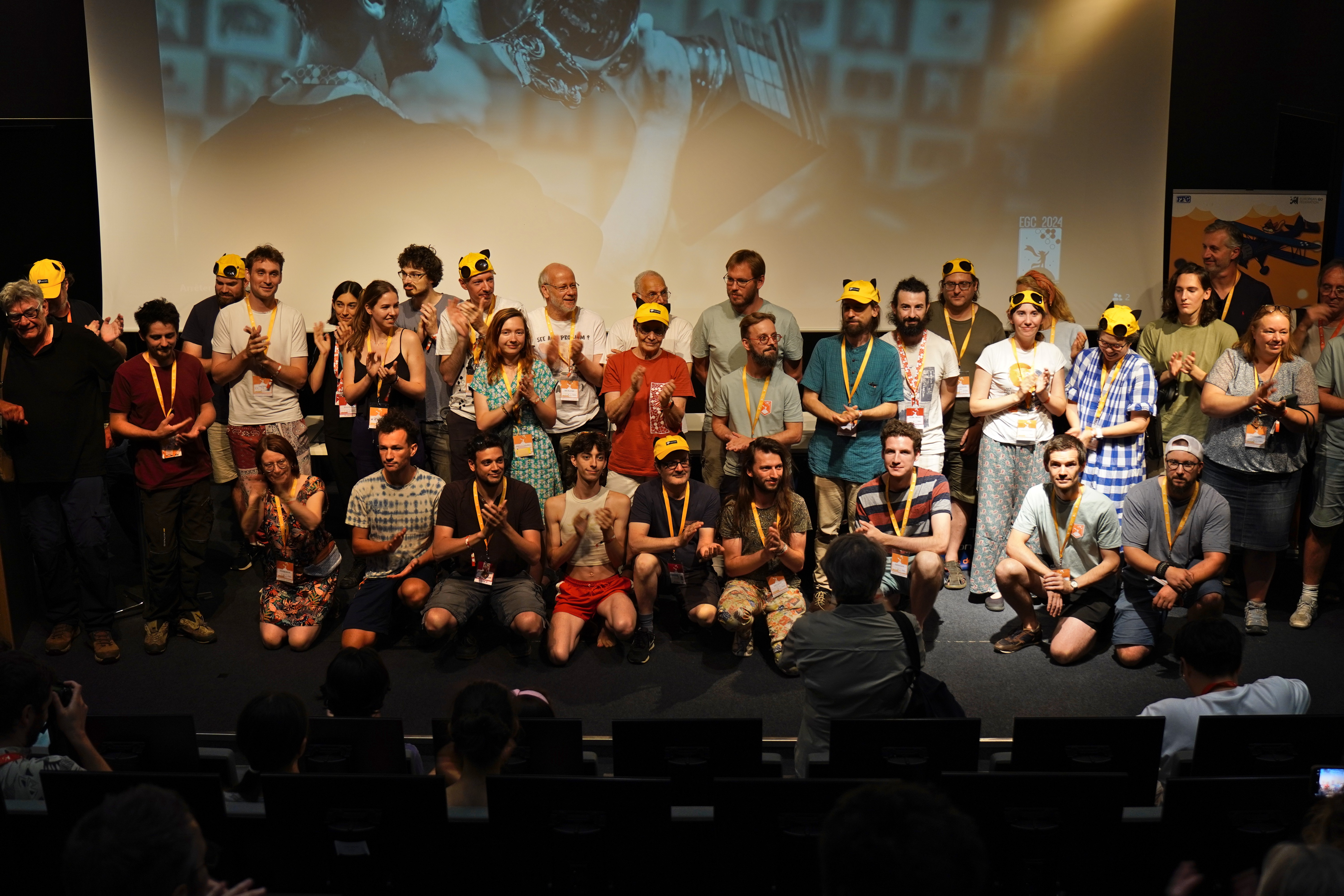
What’s next? Well, EGC 2025 in Poland! :)
For more pictures: https://egc2024.org/en/photos.html and https://www.flickr.com/photos/hvdkrogt/albums
For the results, you can go on the event page and click on the corresponding events.
Thanks to Matthieu Aveaux, Philippe Cance and Harry Van der Krogt for their pictures! Thanks to Matt Partridge, and to Ian Davis for adding a joke to this article and proofreading it!






